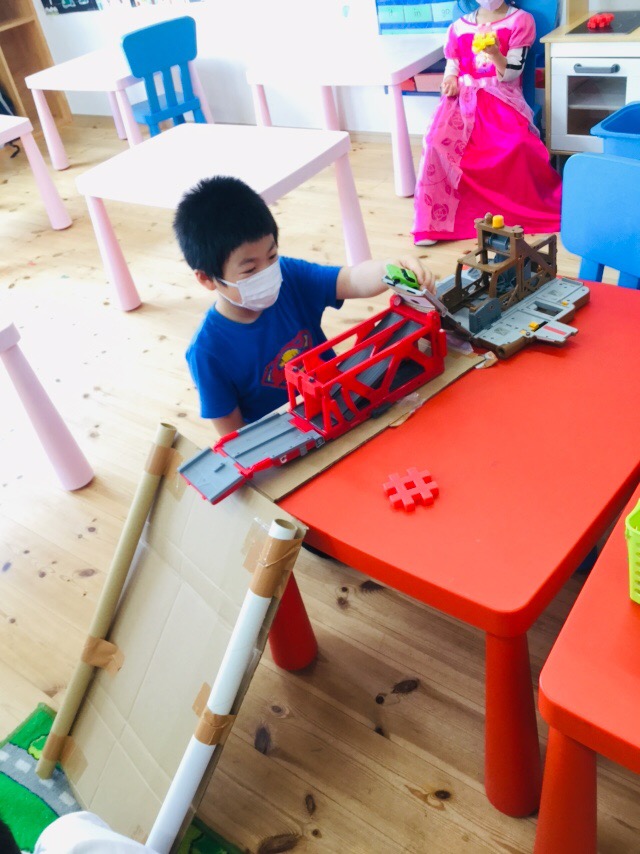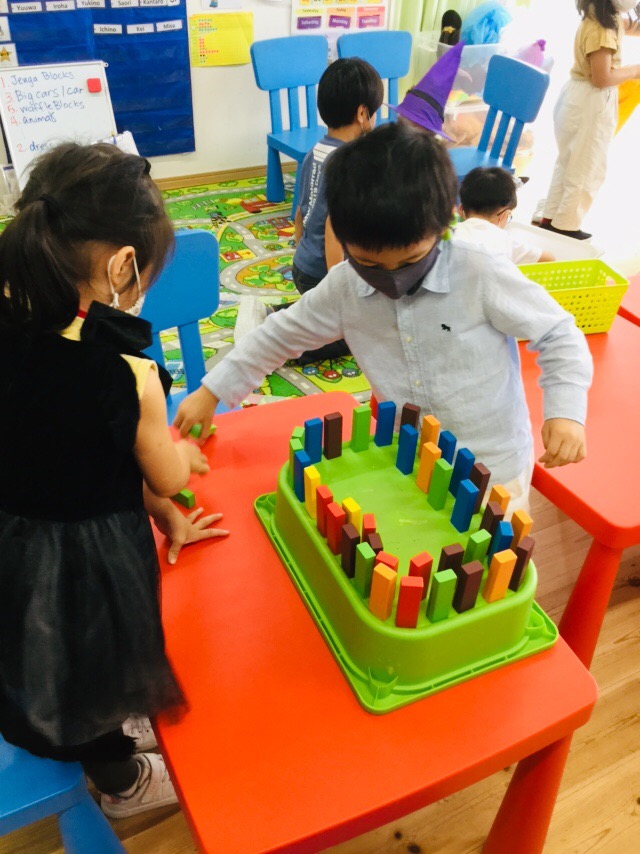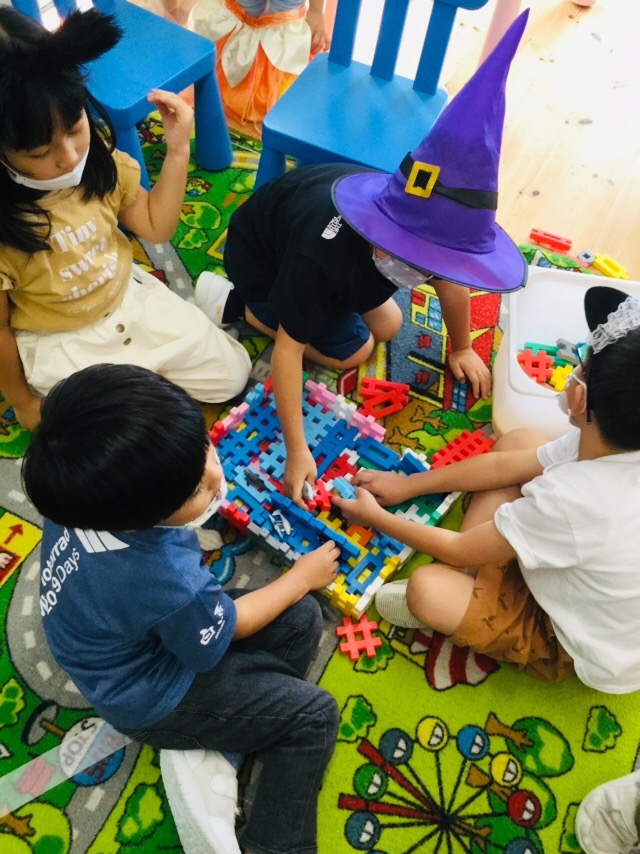As we closed a chapter and moved on from conflict resolution to setting personal and group goals, children learned how to set personal goals and experience what it’s like to work as a team. In the past few days, the children spent a great deal of time thinking about what is a goal, and how they can set up short term goals for themselves. They consulted with the teachers, and some children gave advice to their peers as to how they can take the necessary steps to reach their goals. Some children want to improve their English speaking and reading skills, while others want to be better in sports. No matter what their goals are, we help them understand that taking on new challenges is not easy and it requires their tenacity and patience. Now they all know to keep trying and never give up before they give it a try!
問題解決に関する学びから目標設定に関する学びへと進む中で、子どもたちは個人の目標設定の仕方を学び、チームで働くことがどういうことかを体験しました。この数日間、子どもたちは「目標とは何か」「どうすれば自分のために短期的な目標を立てられるか」を考えるのに多くの時間を費やしました。先生に相談したり、クラスメートにアドバイスをしたりして、目標達成に向けて必要なステップを踏んでいます。英語のスピーキングやリーディングを上達させたいという子もいれば、スポーツが得意になりたいという子もいます。どのような目標であっても、新しいことに挑戦するのは簡単ではなく、粘り強さと忍耐力が必要であることを話し、挑戦し続けること、そして挑戦する前に決してあきらめないことを学びました。
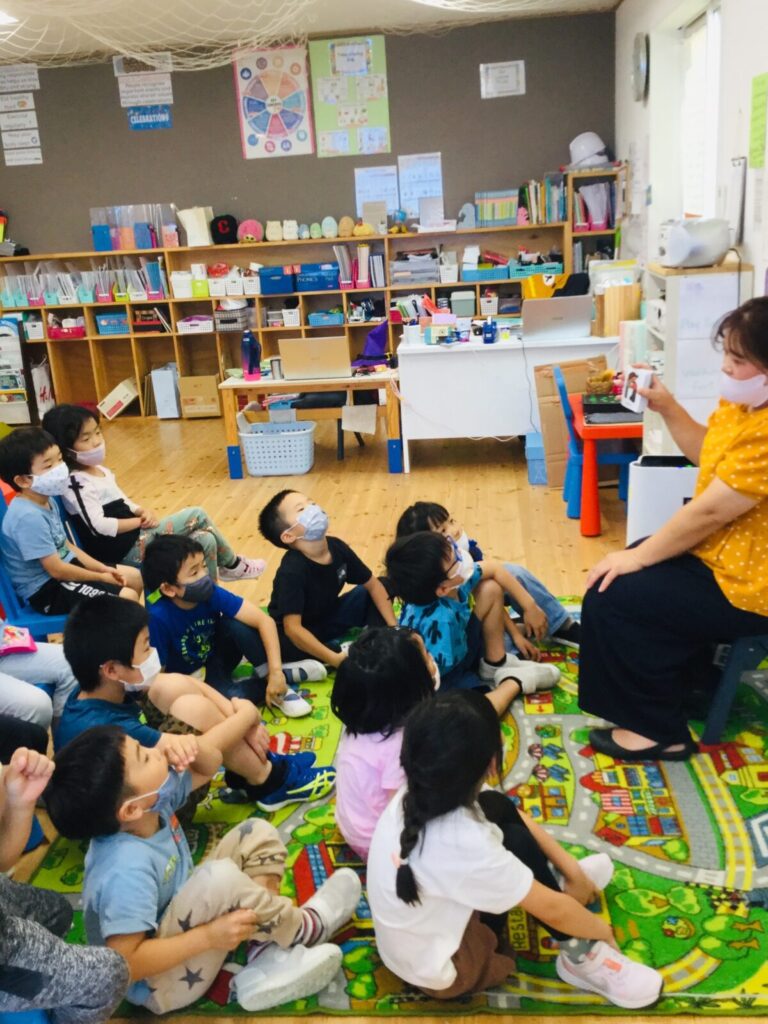
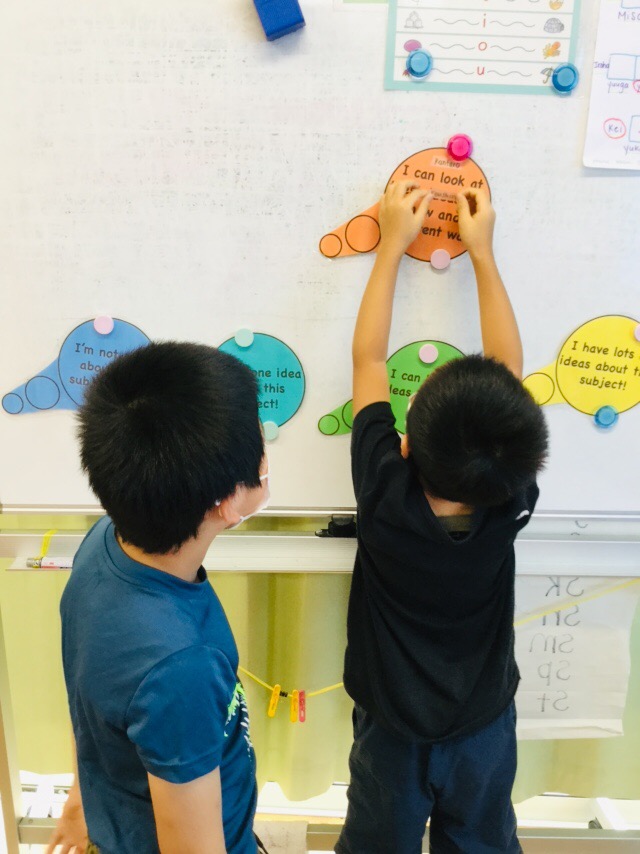
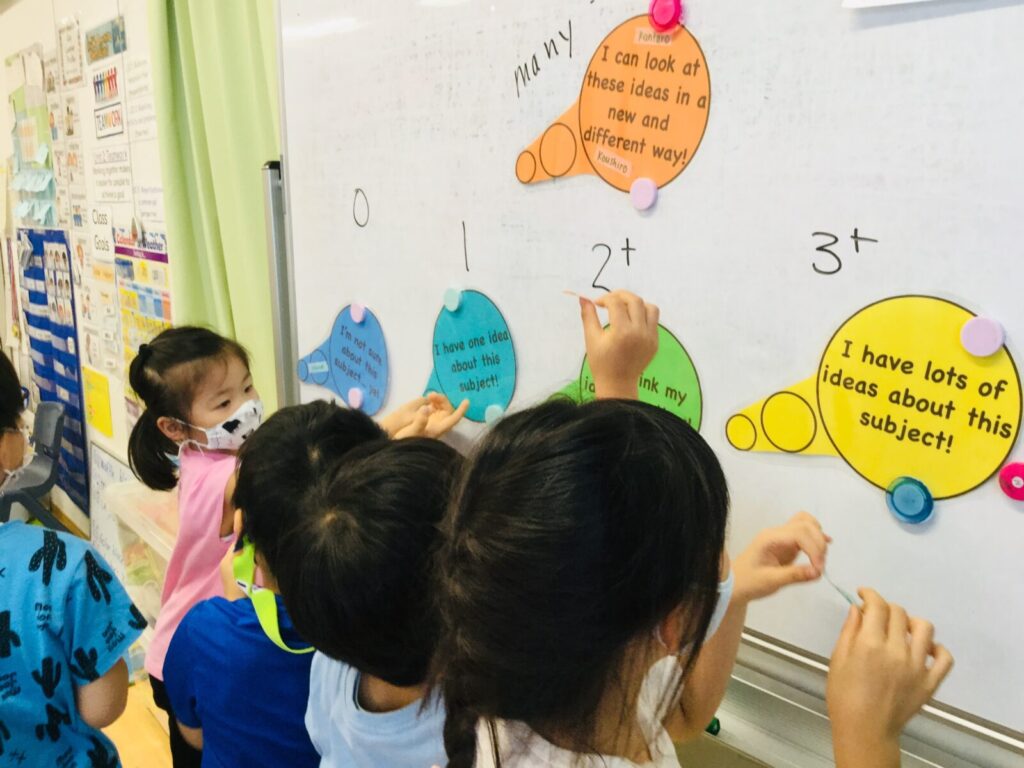
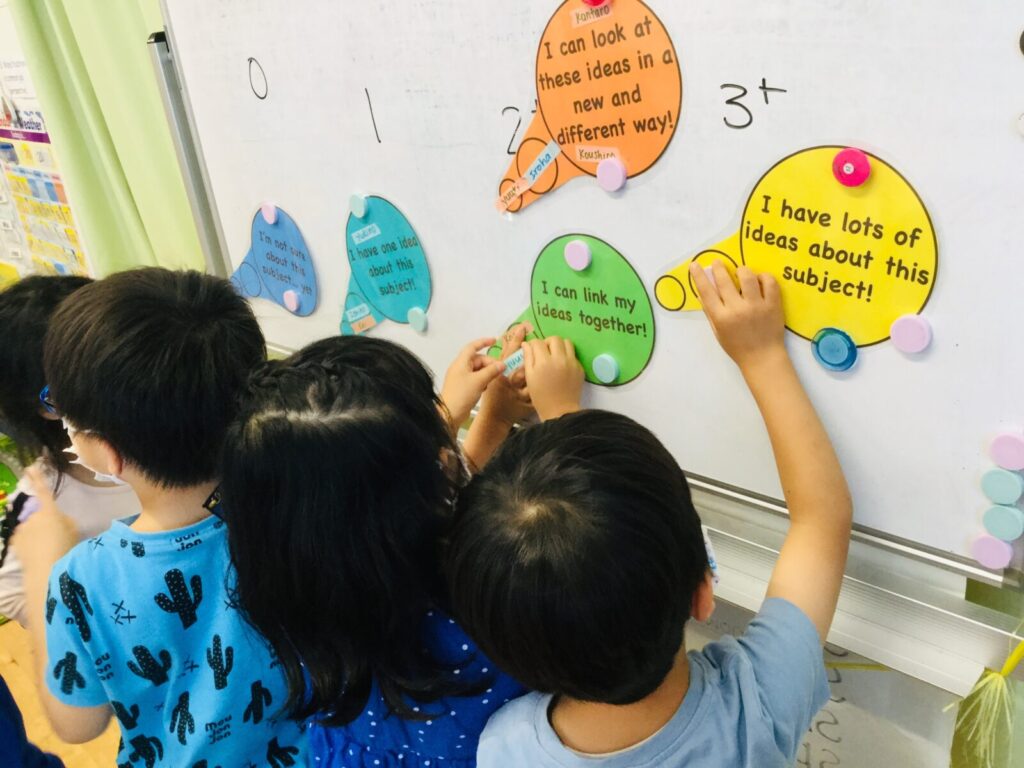
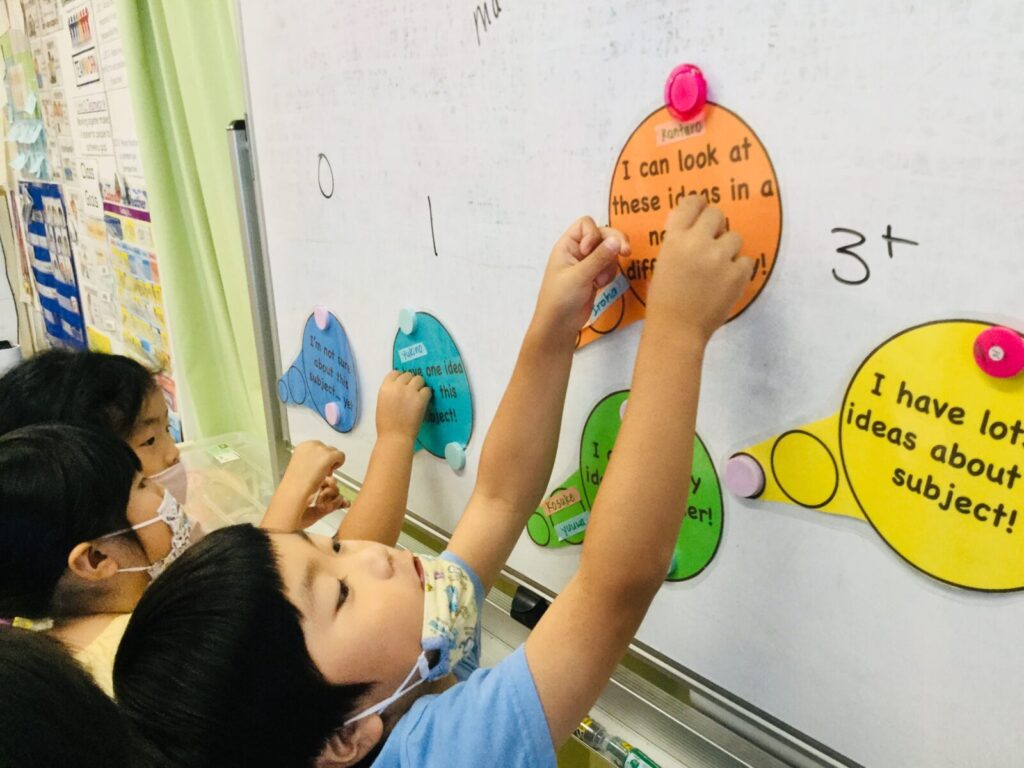
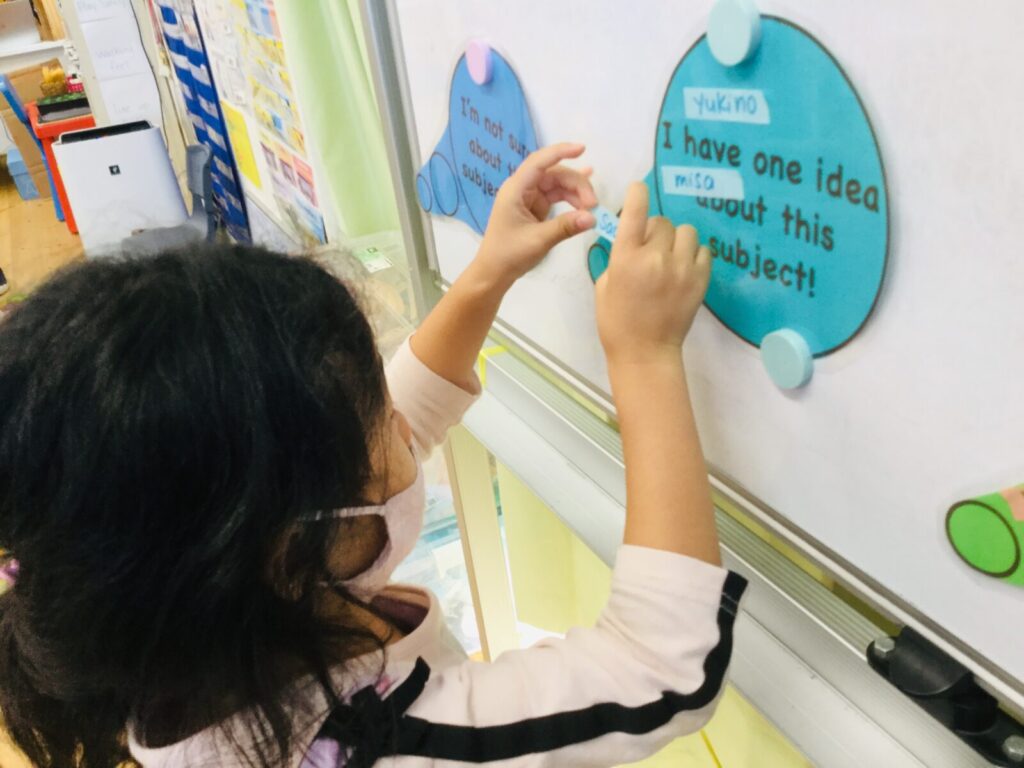
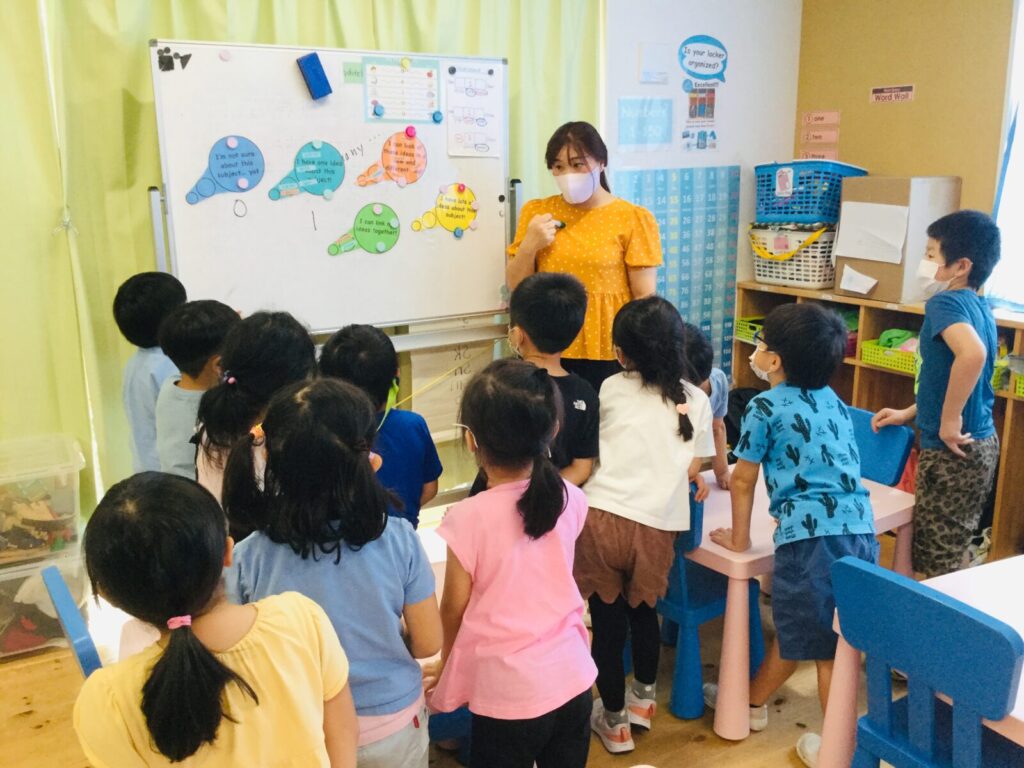
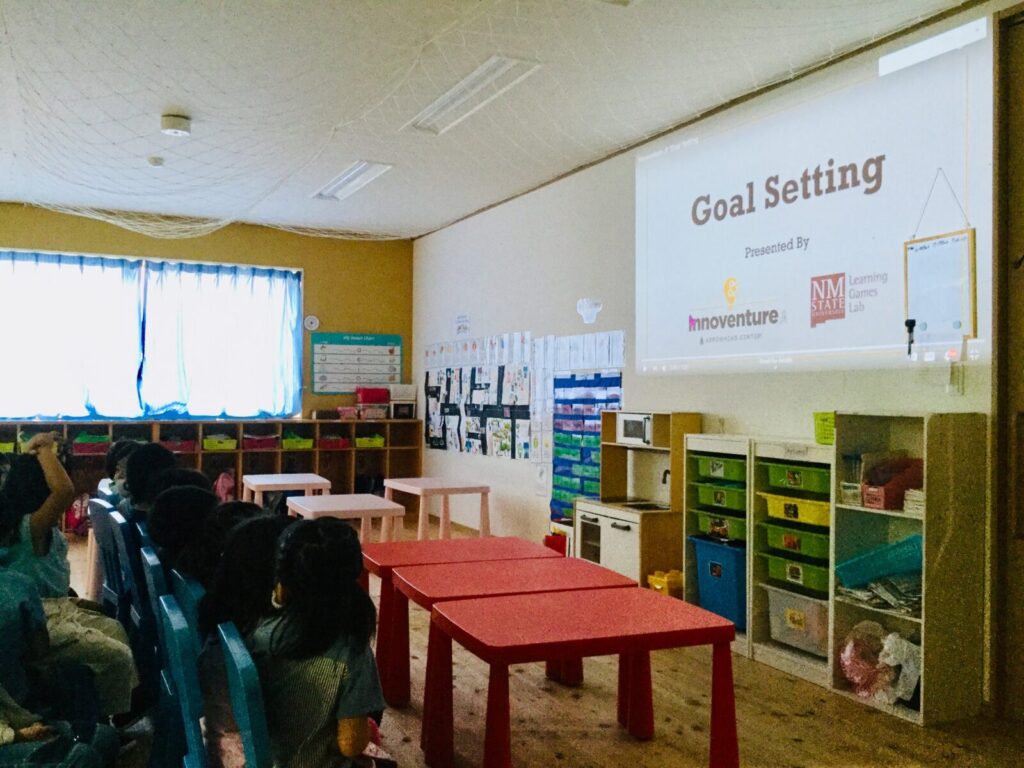
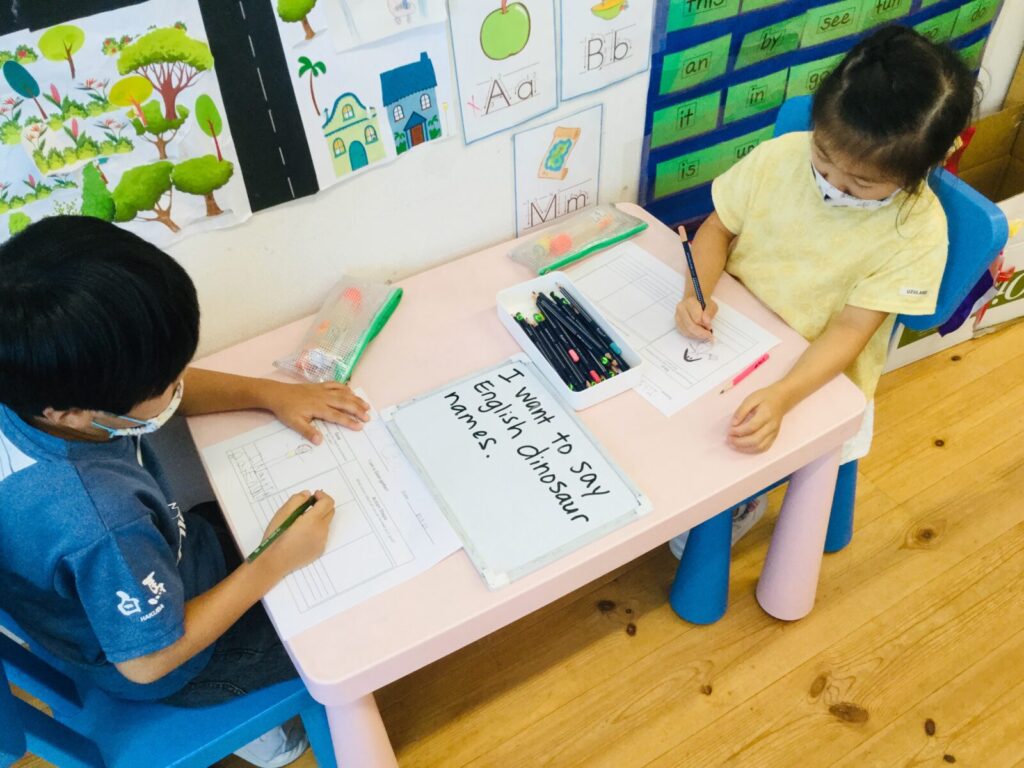
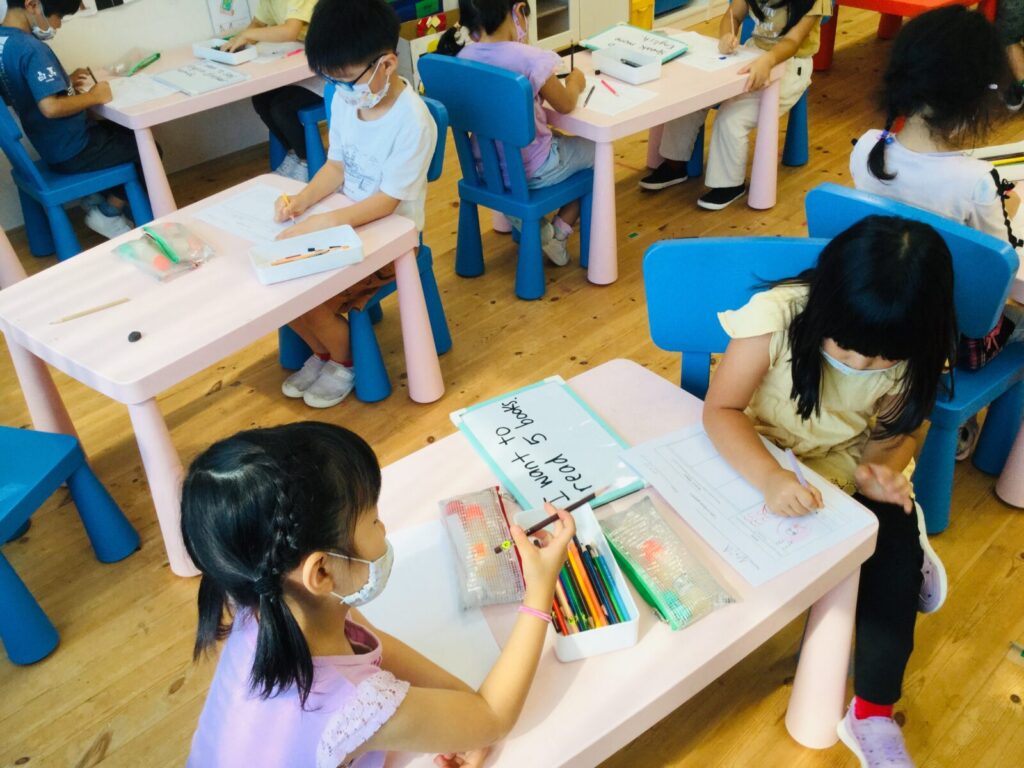
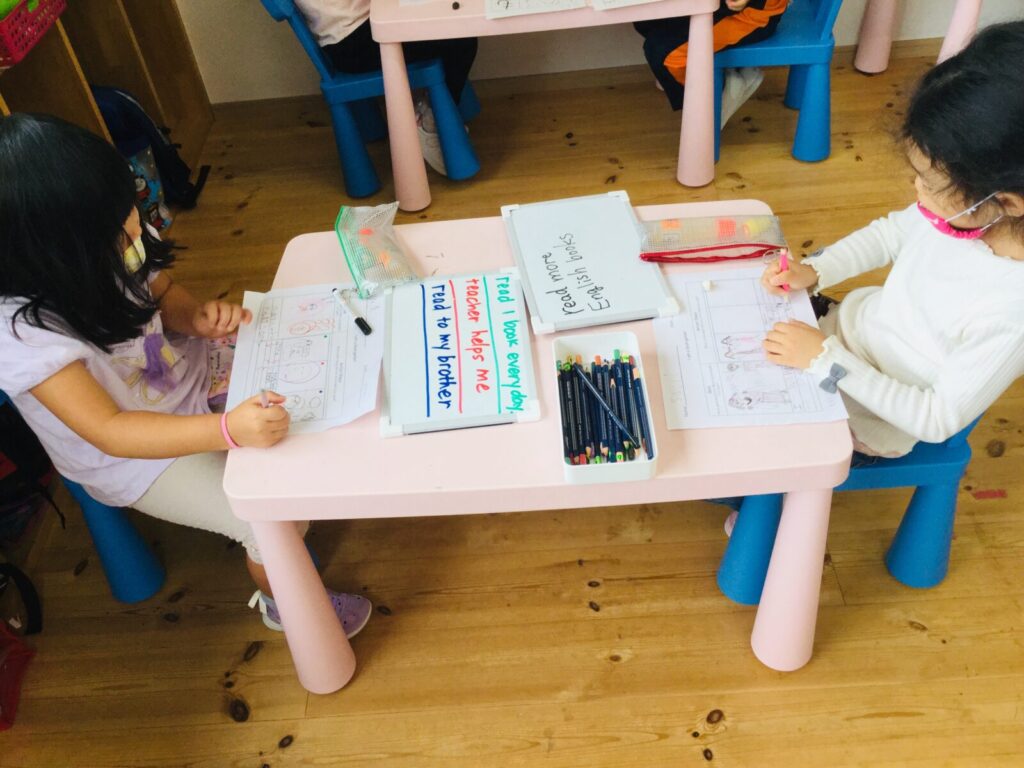
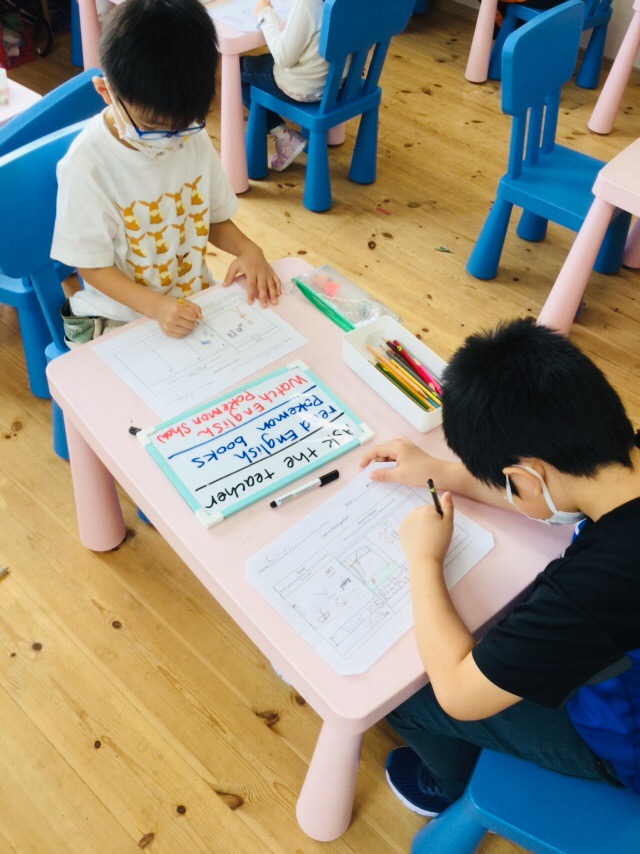
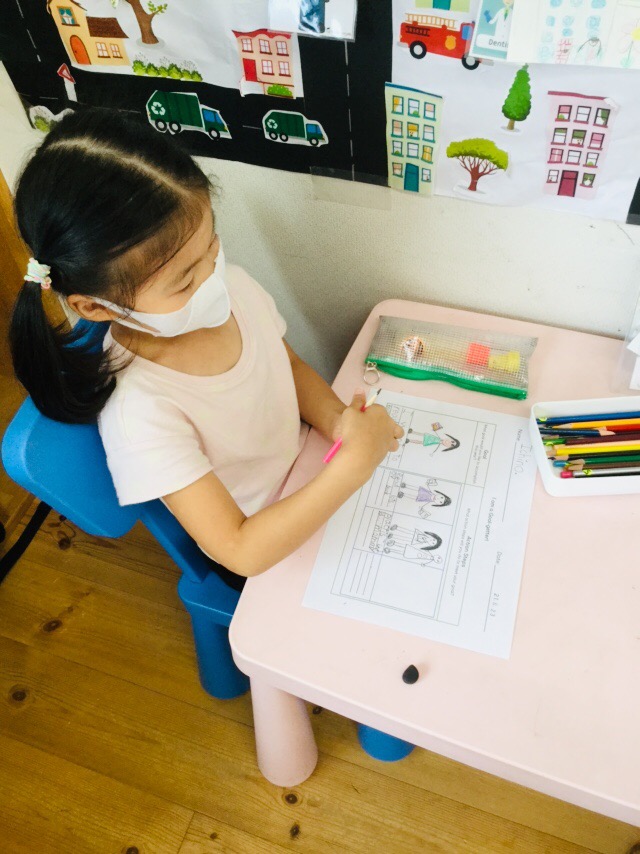
This week children learned about teamwork through some of the challenge activities. We had them try shooting ping pong balls randomly into the baskets, and talked about how it feels if they just shoot aimlessly and in the end what do they get? They all responded, “we don’t know which team won and we don’t like it.” We then divided children into groups and had the groups shoot the ping pong balls into their own baskets. In the end we tallied the balls and found out the winning teams. They all voiced their opinion about how great it feels to know how many balls were in their group baskets. We then used this opportunity to teach the importance of setting a goal for the team and the vital role each person plays.
今週の子どもたちは、いくつかのアクティビティを通して、チームワークについて学びました。ピンポン玉をランダムにカゴに入れてみて、「目標となるバスケットを決めないでやるとどう感じるか」「最終的にはどうなるか」という話をしました。すると全員が「どっちが勝ったかわからなくて嫌だ」と答えました。そこで、子どもたちをグループに分け、ピンポン玉を自分のグループのバスケットに入れてもらいました。最終的にはボールを集計し、優勝チームを決定しました。子どもたちからは「自分のグループのバスケットに何個ボールが入っているかわかるのは気持ちがいい」という声があがりました。この機会に、チームの目標を設定することの重要性と、一人一人が果たす重要な役割について学びました。
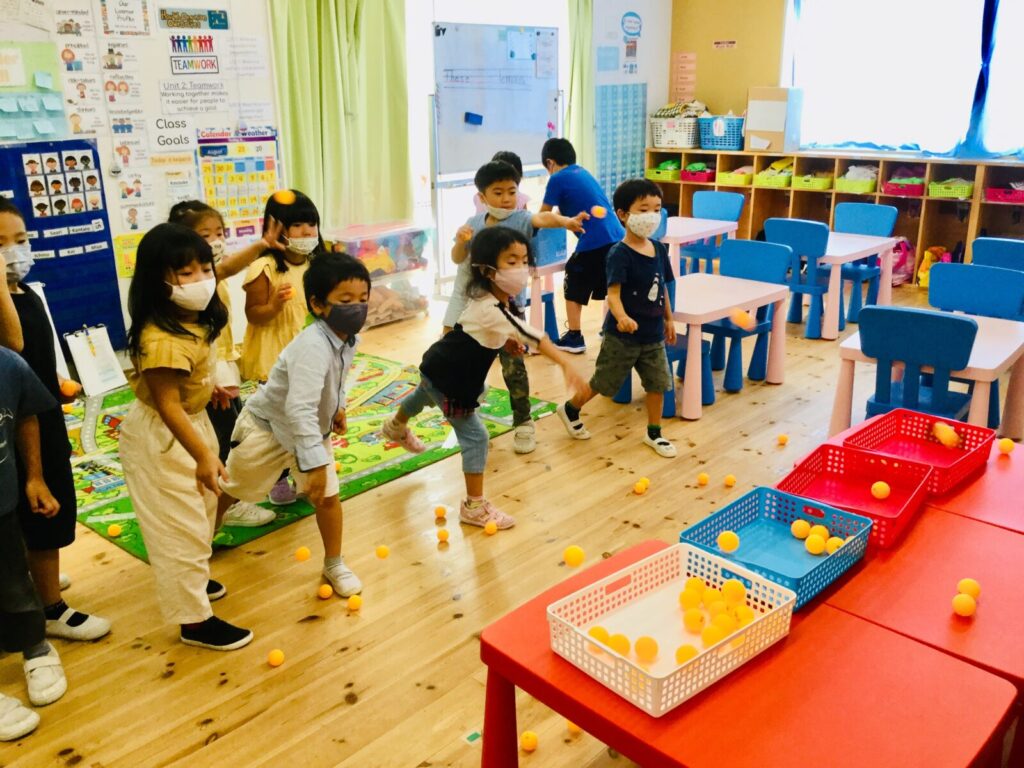
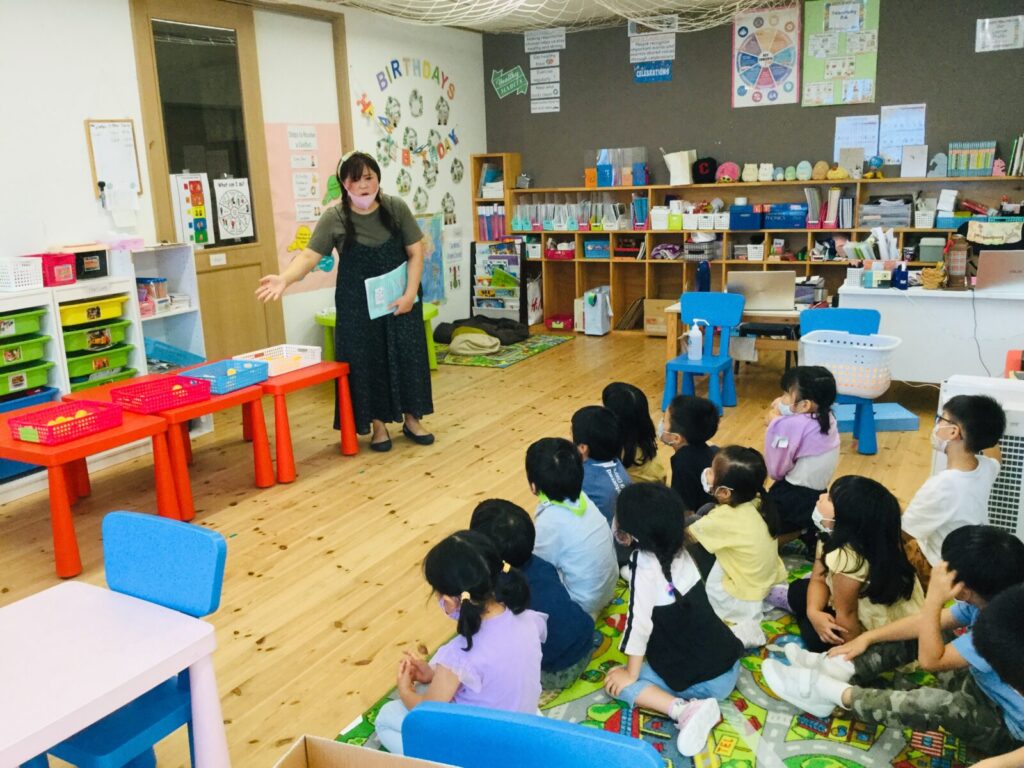
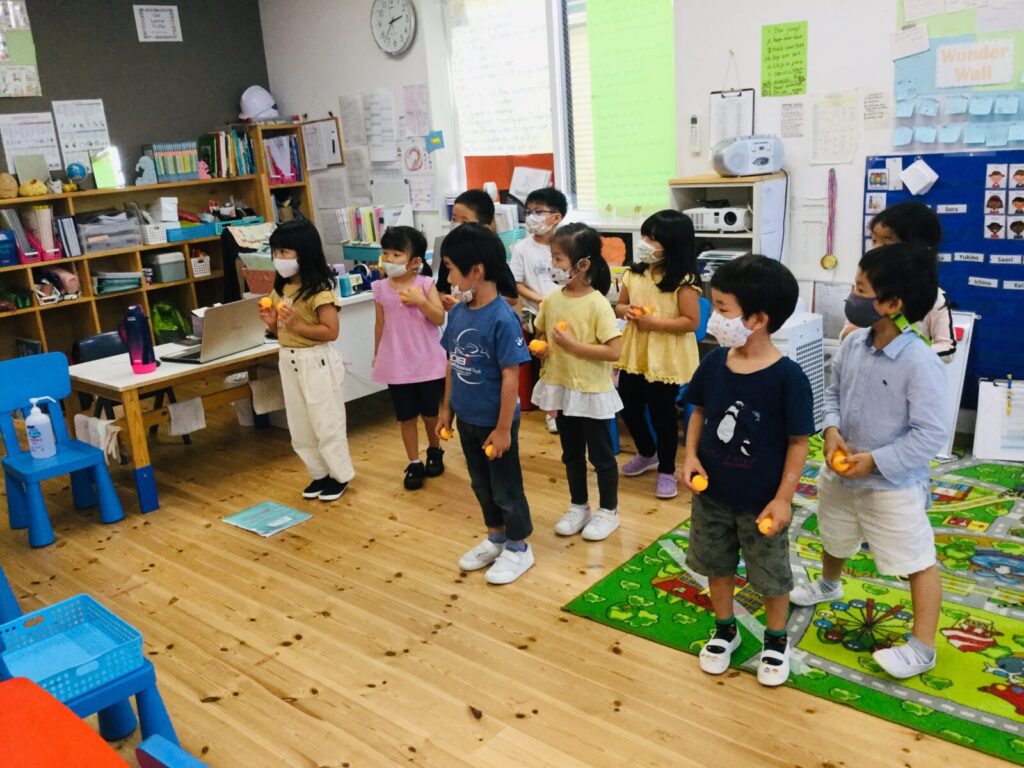
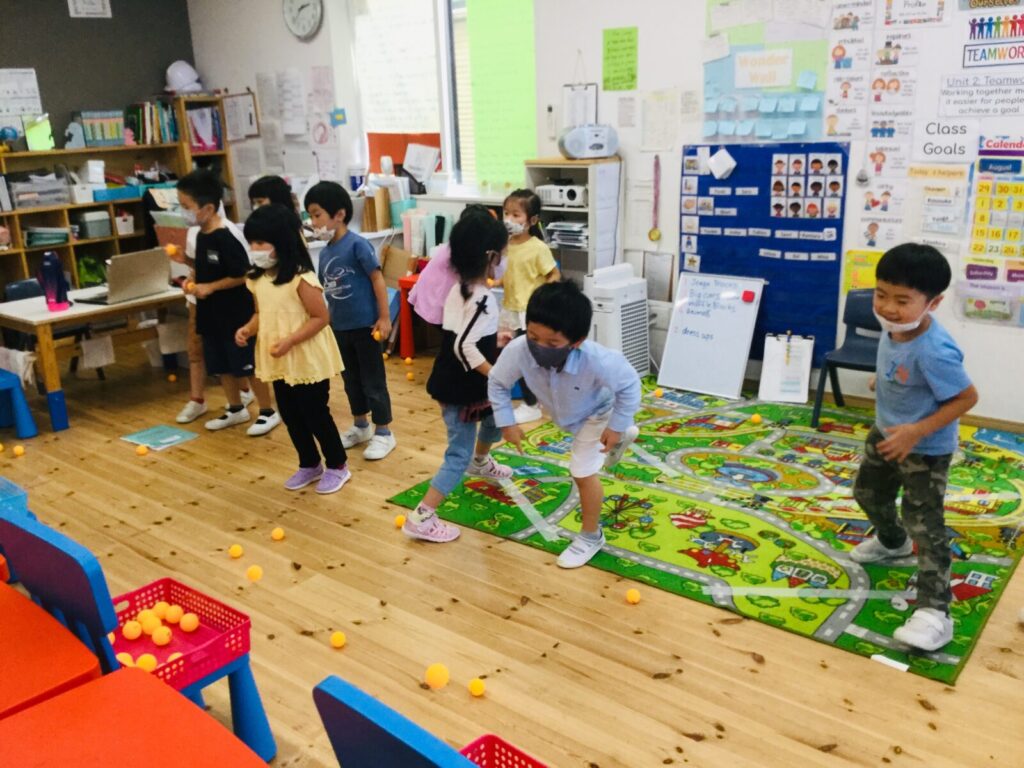
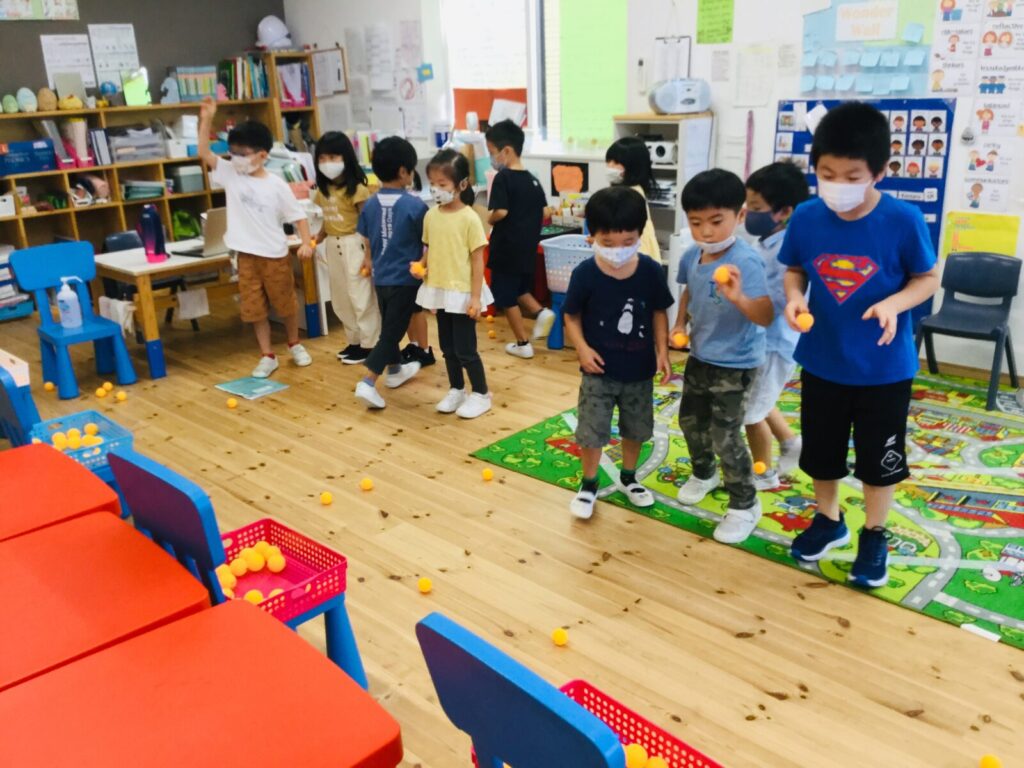
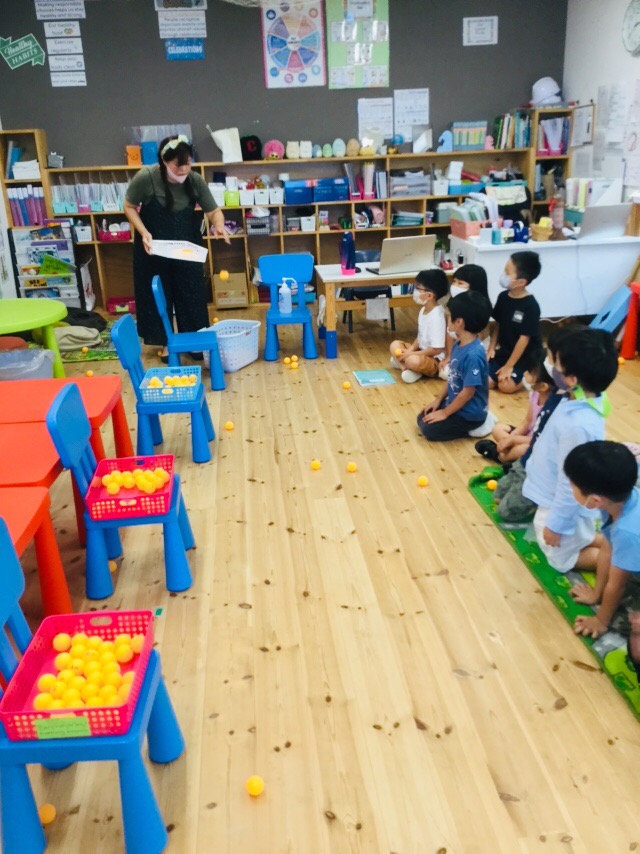
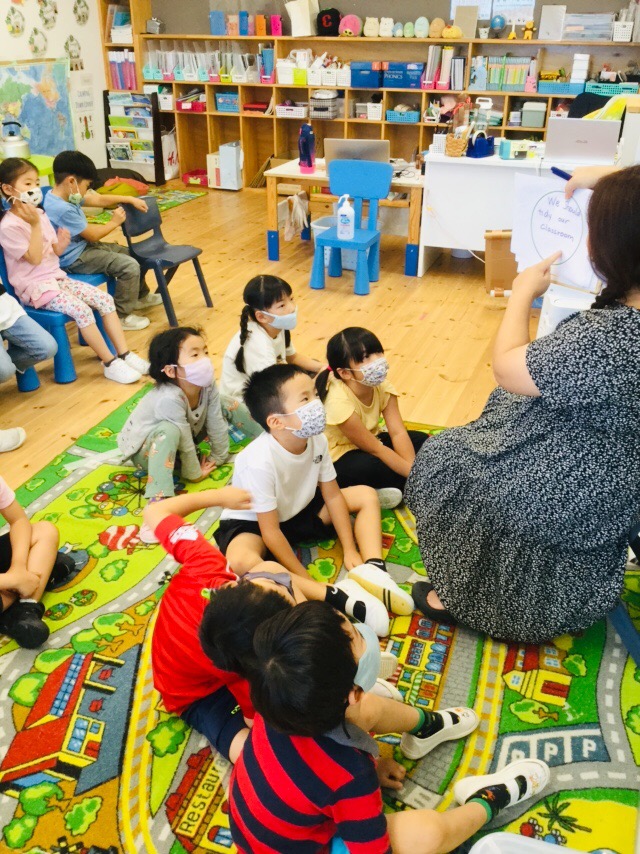
During the Transfer the Cups game, two groups of children had to use strings and rubber bands to carry the cups to another table and make a pyramid with the cups. We observed how some children were shouting “no, I know!” or “No, this way! I know it!” or “let me do it!”, etc. In the end we had a discussion of how they felt and what they thought were the good or not so good points during the game. They all responded and said it is important to communicate with their team, but then, what is communication? And how should a team communicate? They all felt the team that spent a lot of time arguing who they should listen to was not good and that made them lose the game. Not to mention it made everyone unhappy. We are sure through this experience, they have learned, communication is not just telling others “hey, listen to me only! Because I know better”. They saw the importance of staying open-minded and willing to respect others to voice their opinions. More importantly to allow others to use their ideas and try different ways of doing things.
Transfer the Cupというゲームでは、2つのグループの子どもたちが、テーブルの上のカップを、紐や輪ゴムを使って別のテーブルに運び、ピラミッドを作るというものでした。このゲームでは、「この方がいいよ!」「いや、こっちだよ!」「やらせて!」と叫んでいる様子が見られました。その後に、ゲーム中に感じたことや、良かった点、良くなかった点などを話し合いました。彼らは皆、チームでのコミュニケーションが重要だと答えましたが、では、コミュニケーションとは何でしょう?そして、チームはどのようにコミュニケーションをとるべきなのでしょうか?
負けてしまったチームでは、誰の言うことを聞くべきかという議論に時間をたくさん取られてしまっていたことが良くなかったのだと感じ、それが敗因だと話し合いました。そして、そのせいでチームのみんなが不幸になってしまうこともわかりました。コミュニケーションとは、ただ単に相手に「僕の言う通りにやればいいんだよ! 僕の方がよく知っているんだから !」というものではないことを、今回の体験を通して学んだことでしょう。 彼らは、心を開いて、他の人が意見を言うのを尊重することの重要性を知りました。さらに重要なことは、他の人が自分のアイデアを使い、異なる方法を試すことを認めることです。
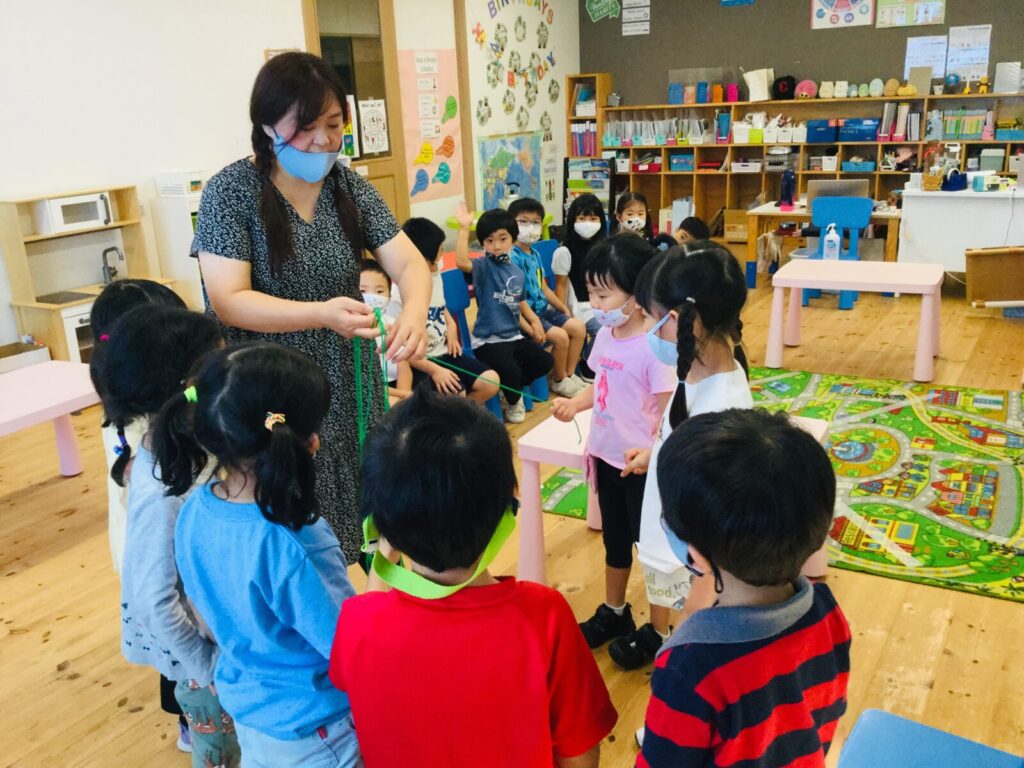
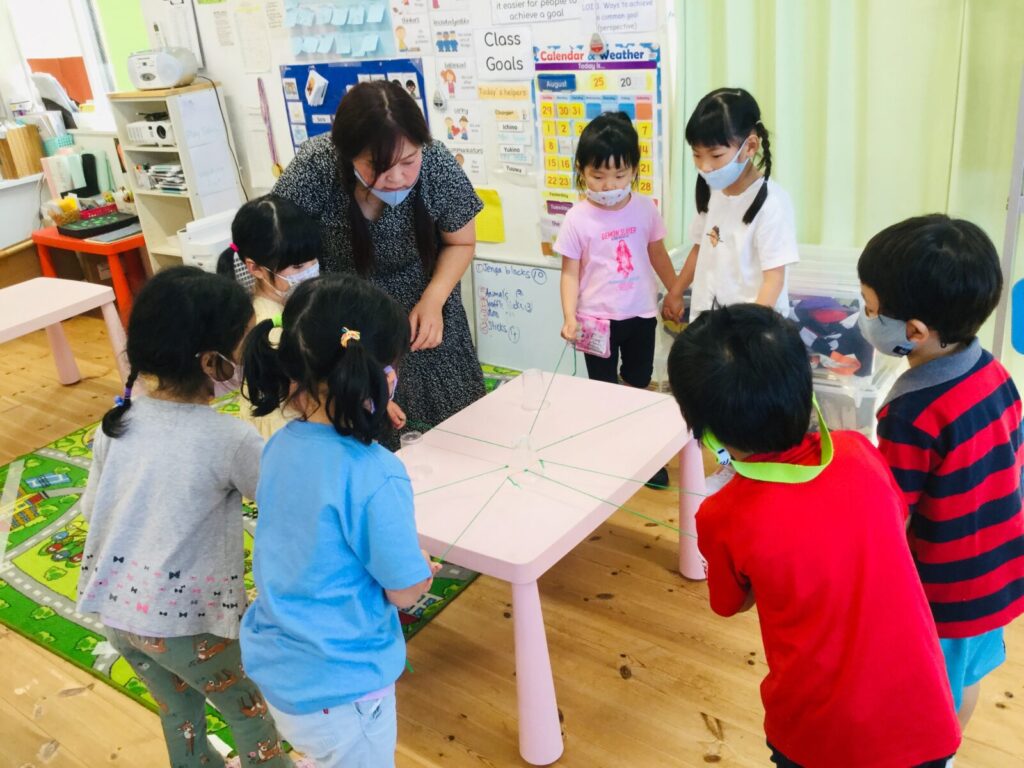
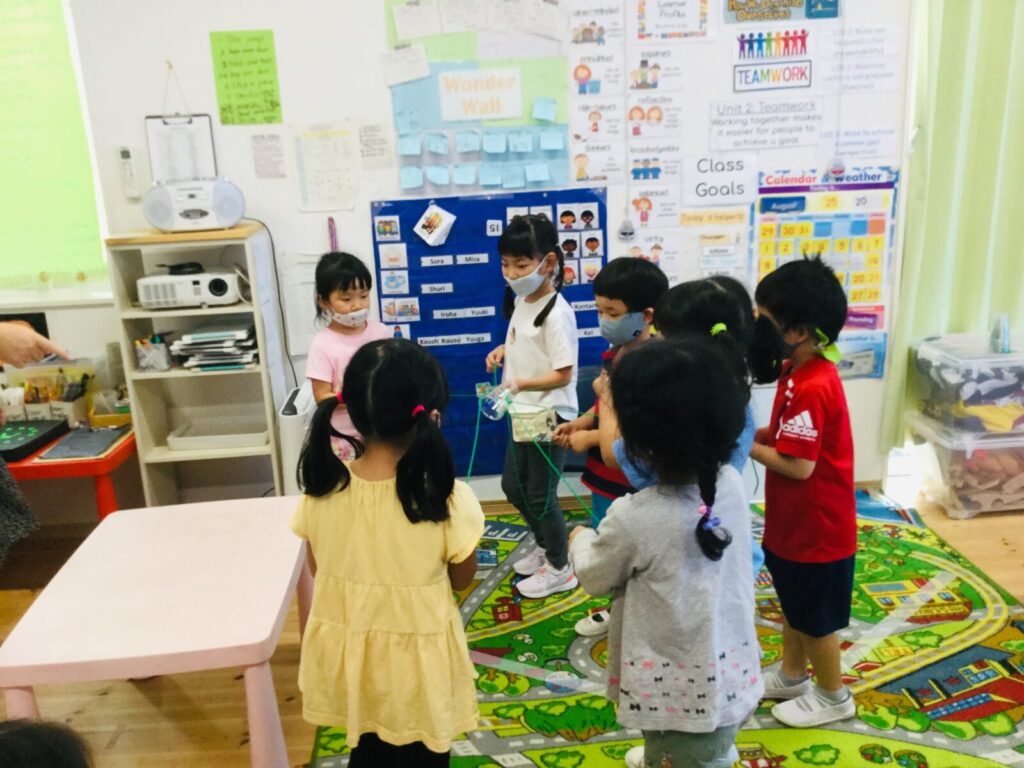
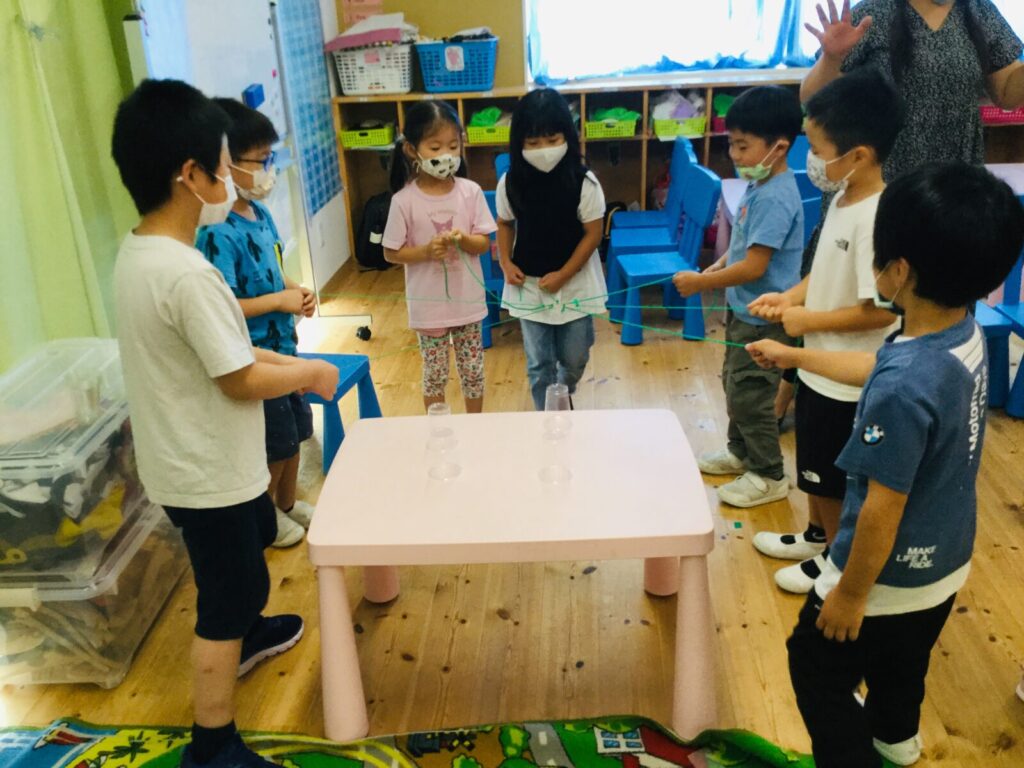
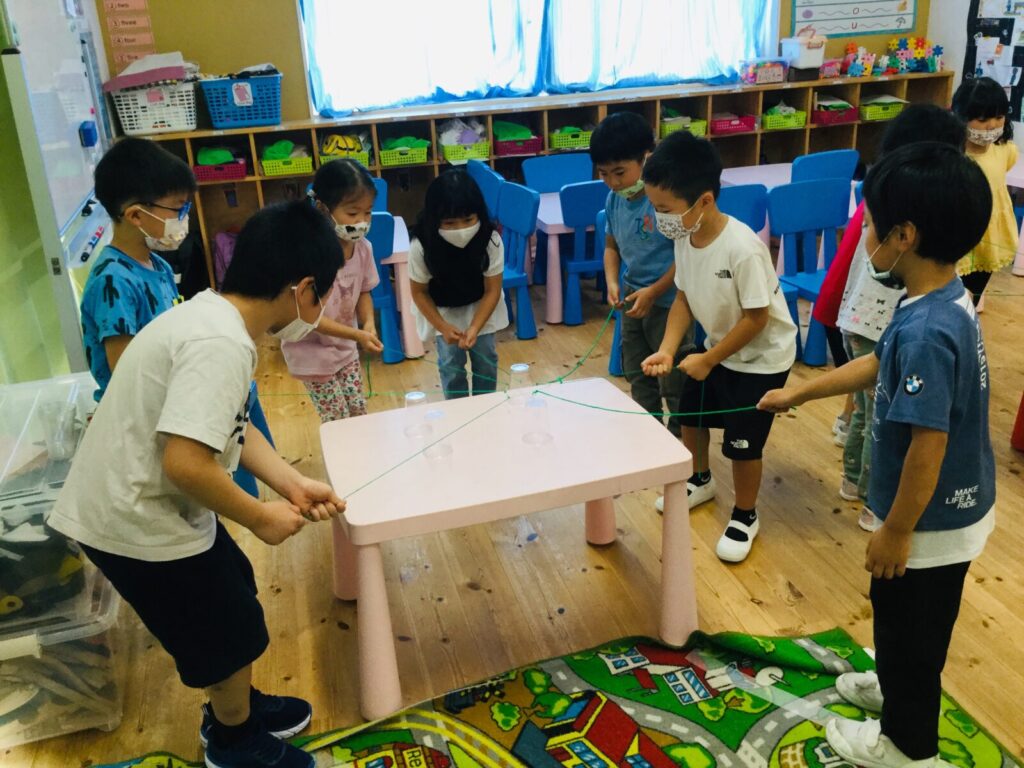
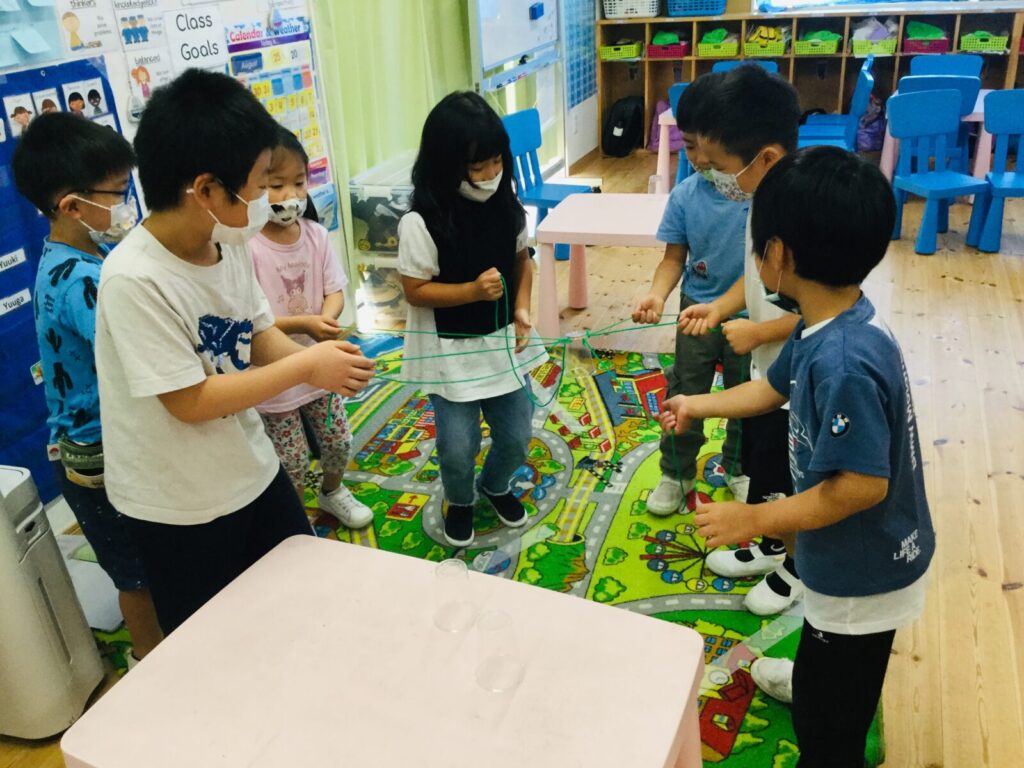
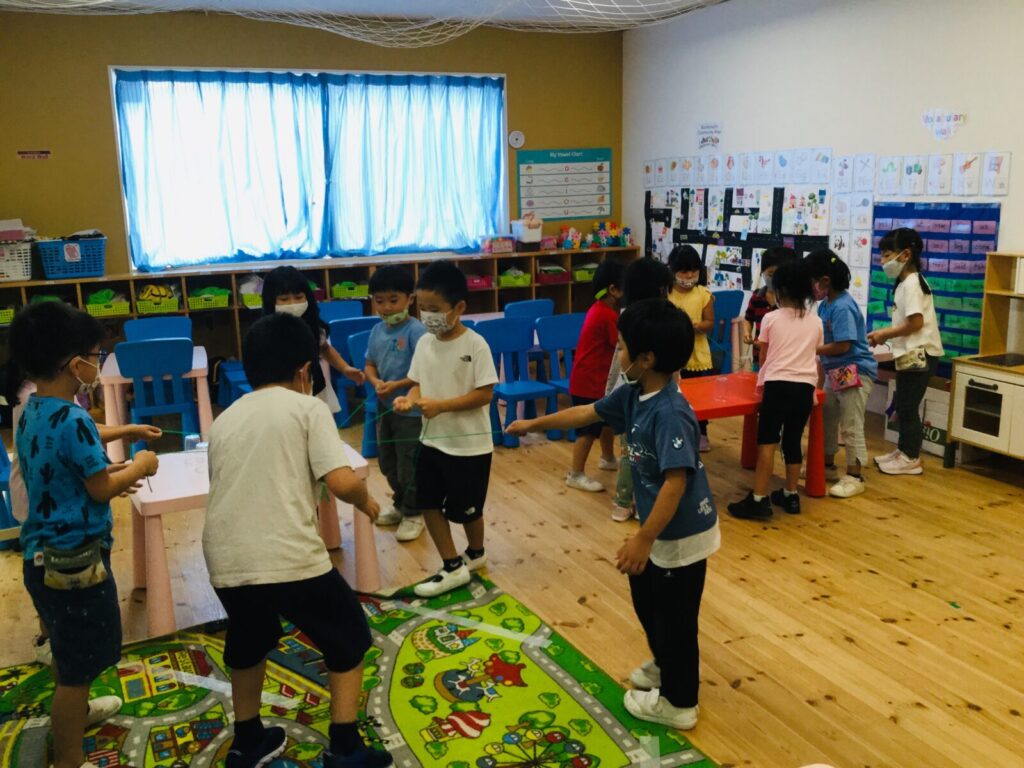
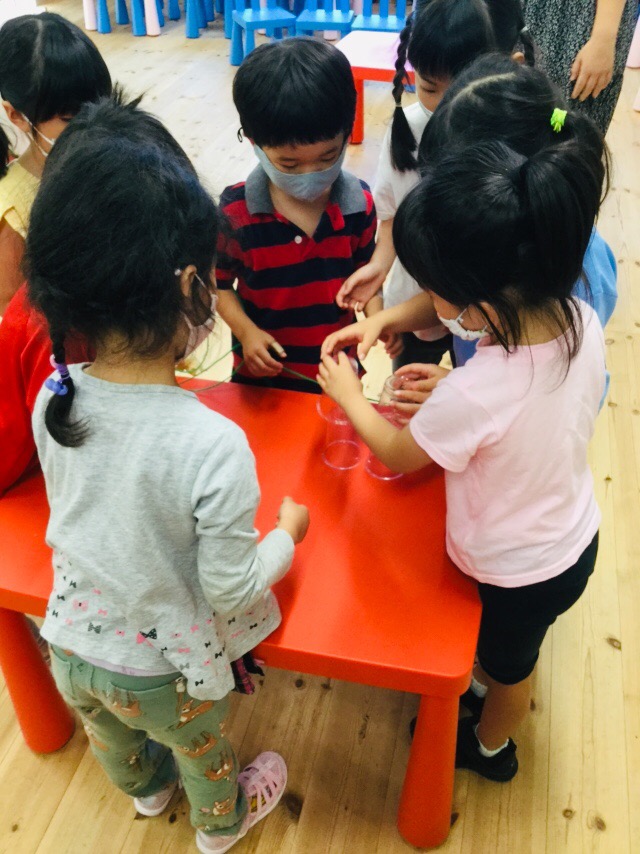
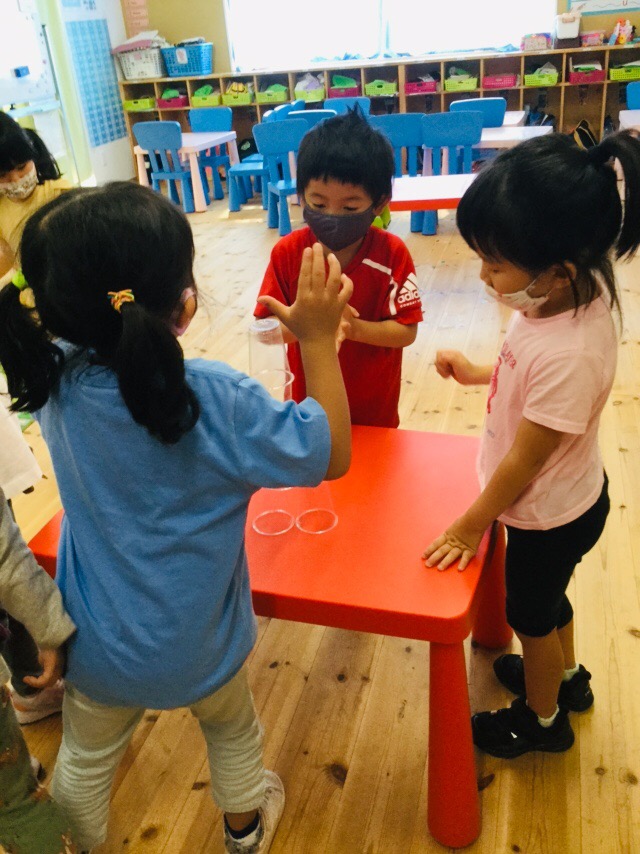
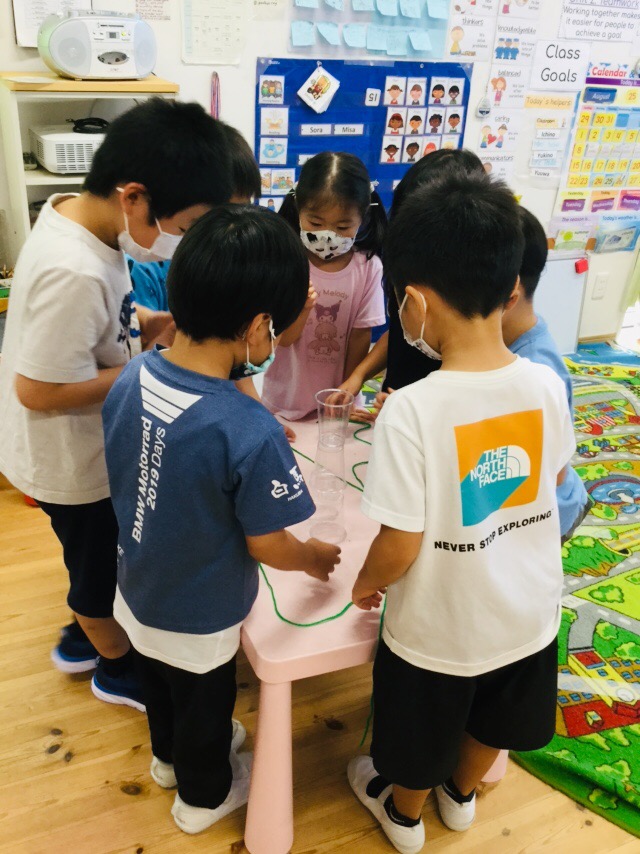
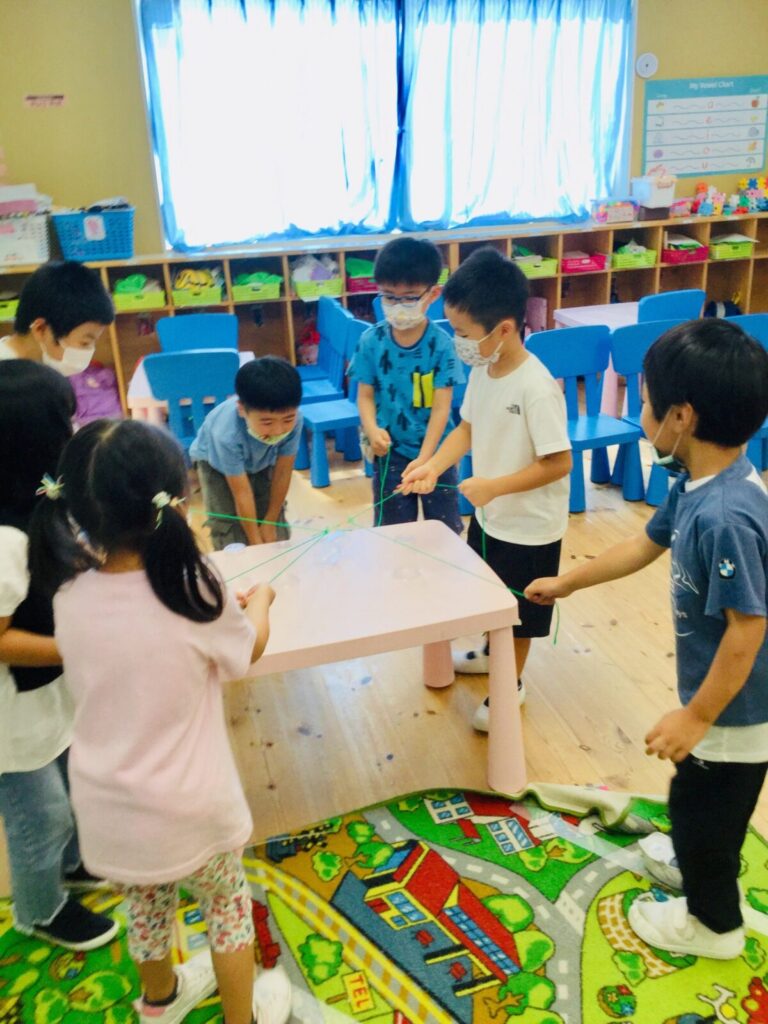
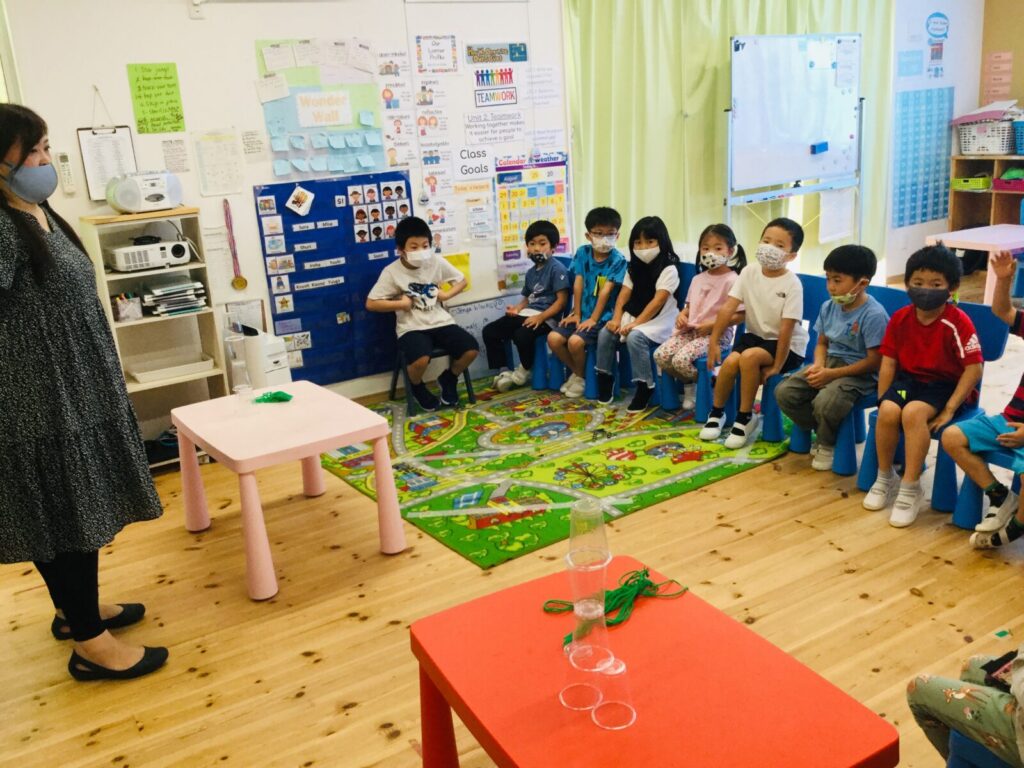
Everyone has their own learning styles, therefore we try to incorporate the various ways to help children learn the sentences and how to construct it on their own. We repeat the sentences by using the various voices or body movements to help them remember and retain the information. This has been one of their favorite ways of remembering how to write their sentences.
学習スタイルは人それぞれなので、子どもたちが自分で文を覚え、組み立てられるように、さまざまな方法を取り入れるようにしています。声や体の動きを使って文章を繰り返すことで、子どもたちが情報を記憶し、維持できるようにしています。この方法は、子どもたちが文章の書き方を覚えるのに最も気に入っている方法のひとつです。
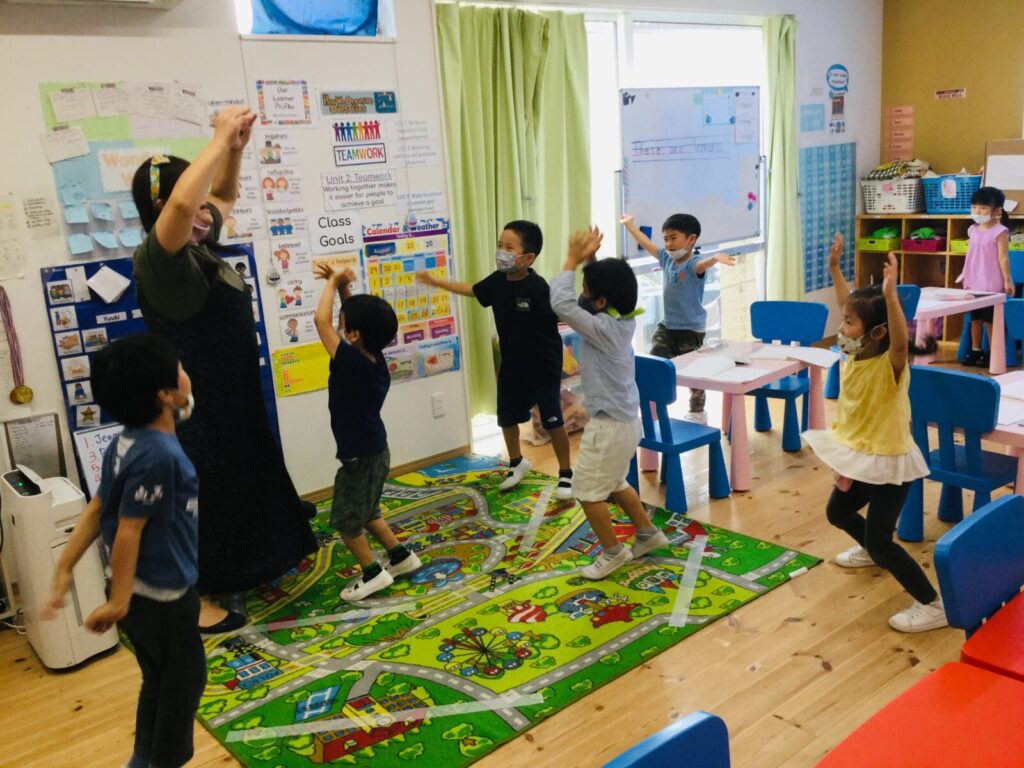
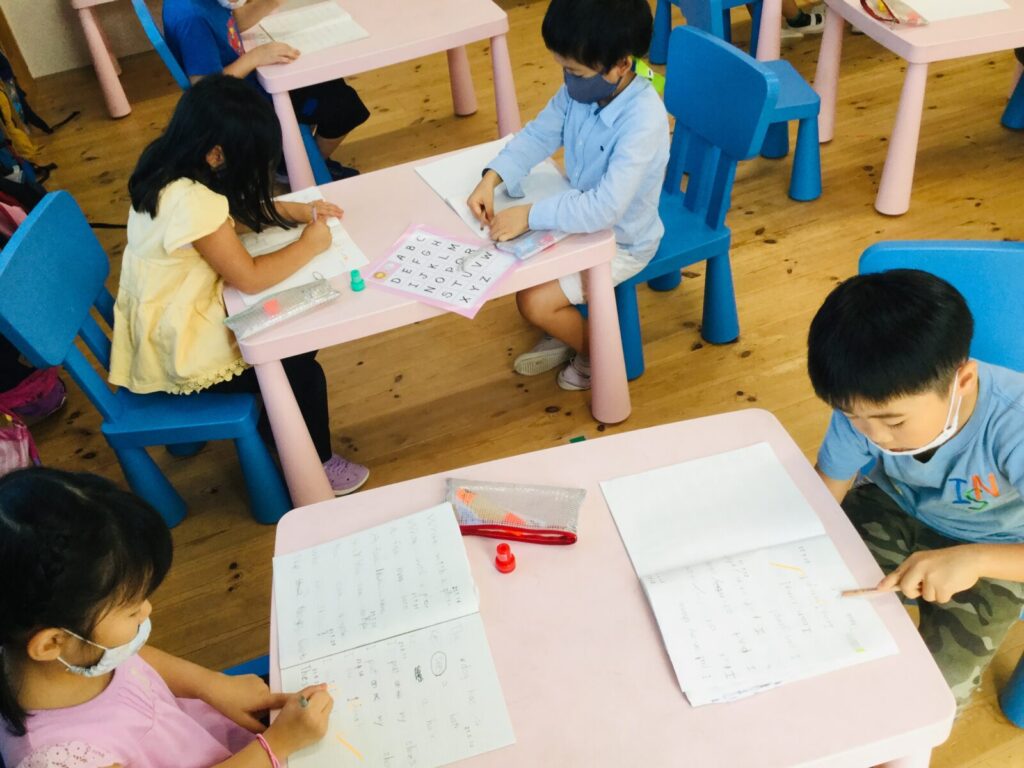
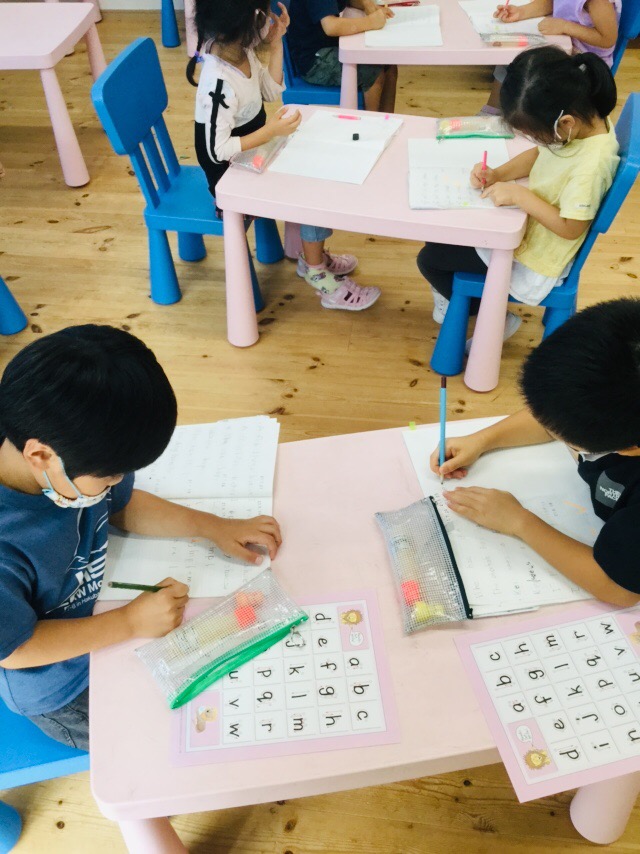
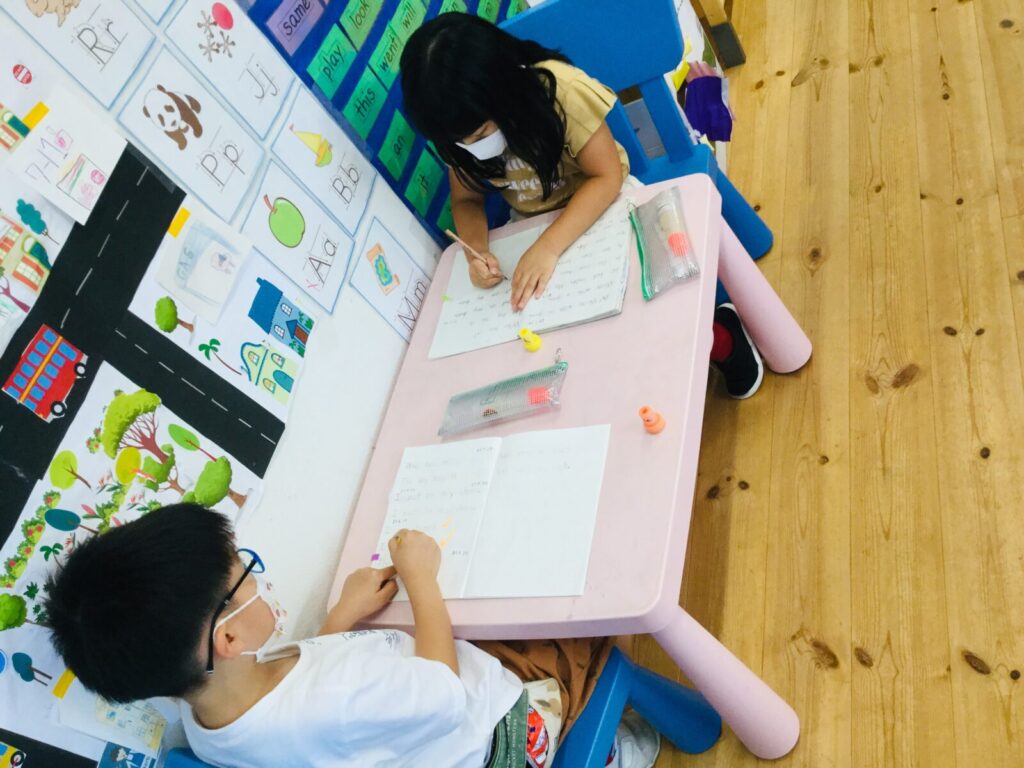
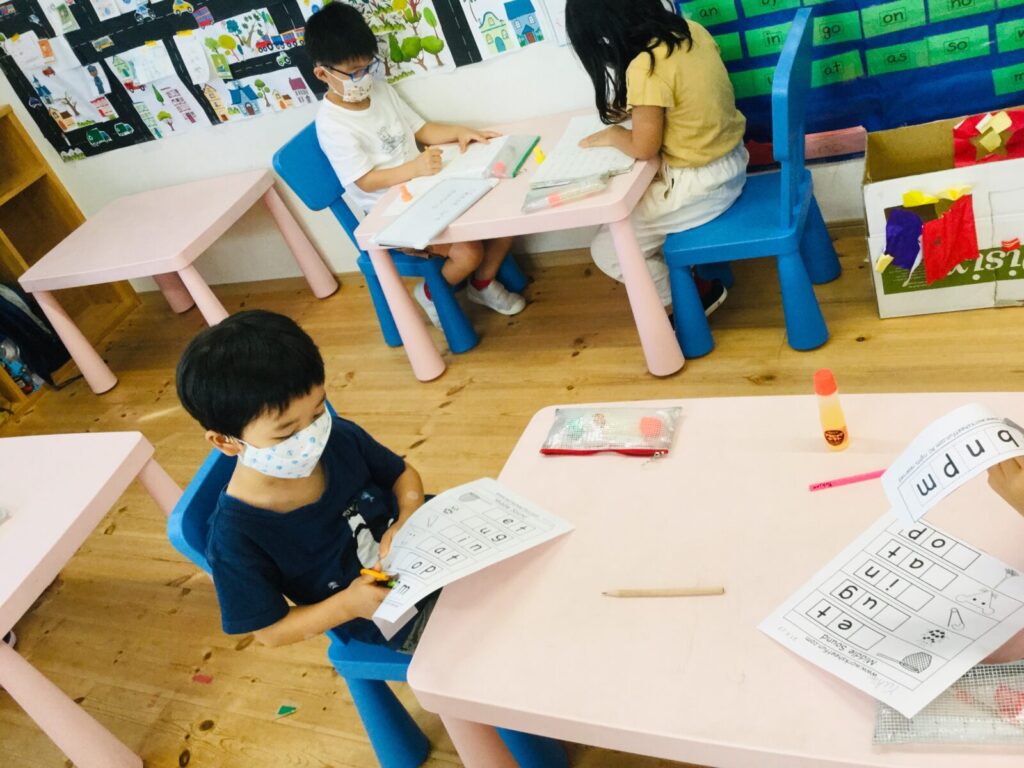
Changing words from short vowels to long vowels has become more and more interesting. The children thought it was magical when we changed the word, Kit to Kite! The children discovered there are so many other words they can change, as they played the find your match game by matching the short vowel words to long vowel words. Some found it difficult to grasp the concept yet, while others found it easy. No matter where they are at their level of understanding, with more of these fun phonic lessons, we are sure they all will come onboard soon!
フォニックスでは、短母音から長母音へと言葉を変えることが、ますます面白くなってきました。KitをKiteに変えると、子どもたち魔法みたいだと話しました。他にもたくさんの言葉があることを発見した子どもたちは、短母音の言葉を長母音の言葉に合わせるゲームをして、一致するものを探しました。難しいと感じる子もいれば、簡単だと感じる子もいます。理解度に関わらず、このような楽しいフォニック・レッスンを続けていけば、きっと全員がすぐに理解できるようになるでしょう。
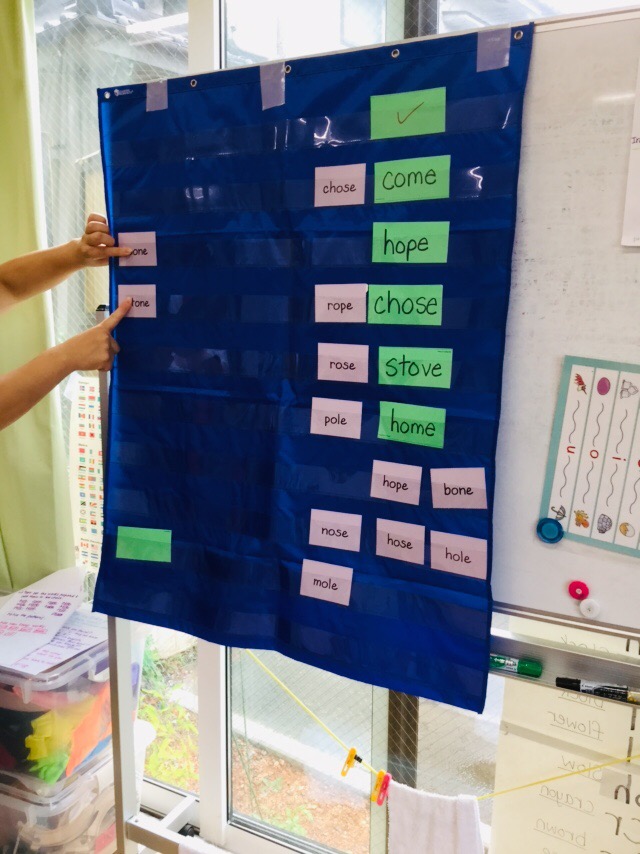
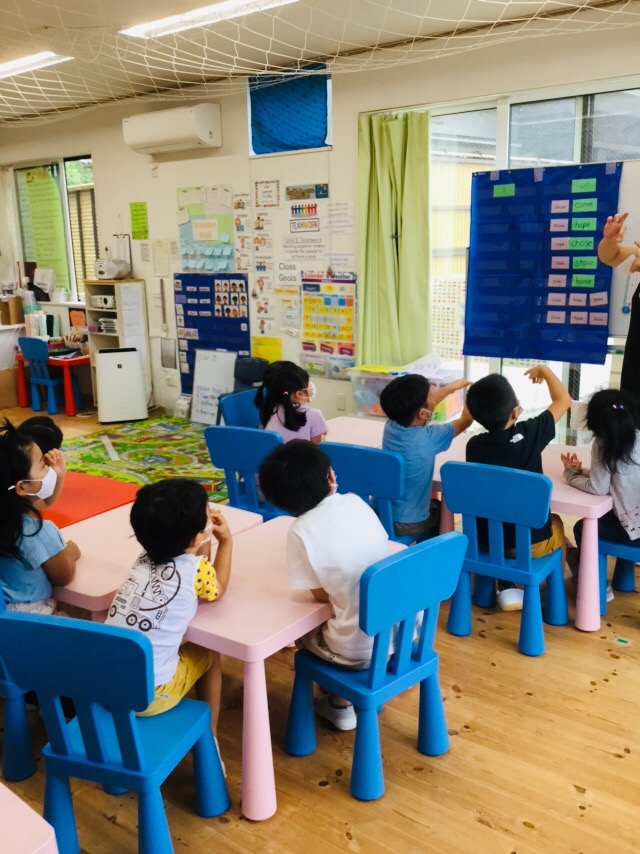
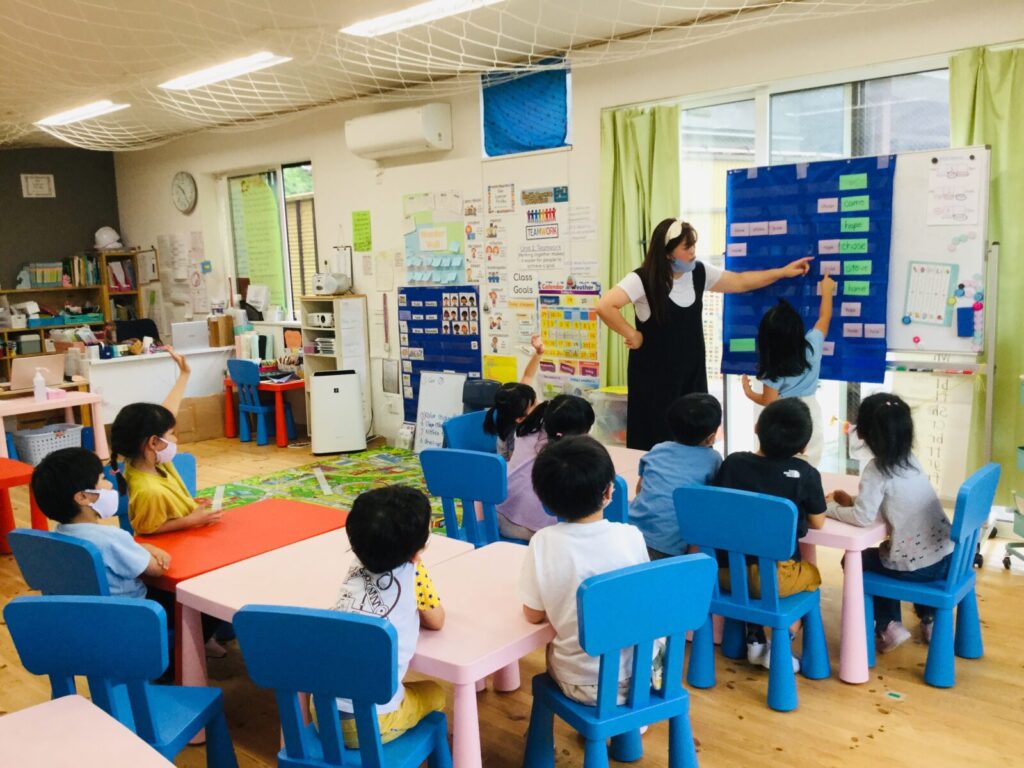
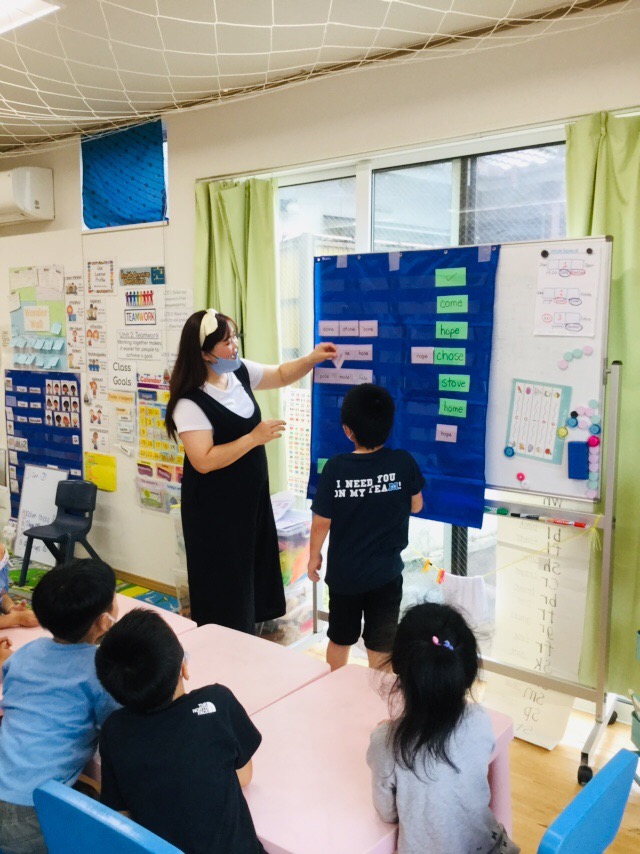
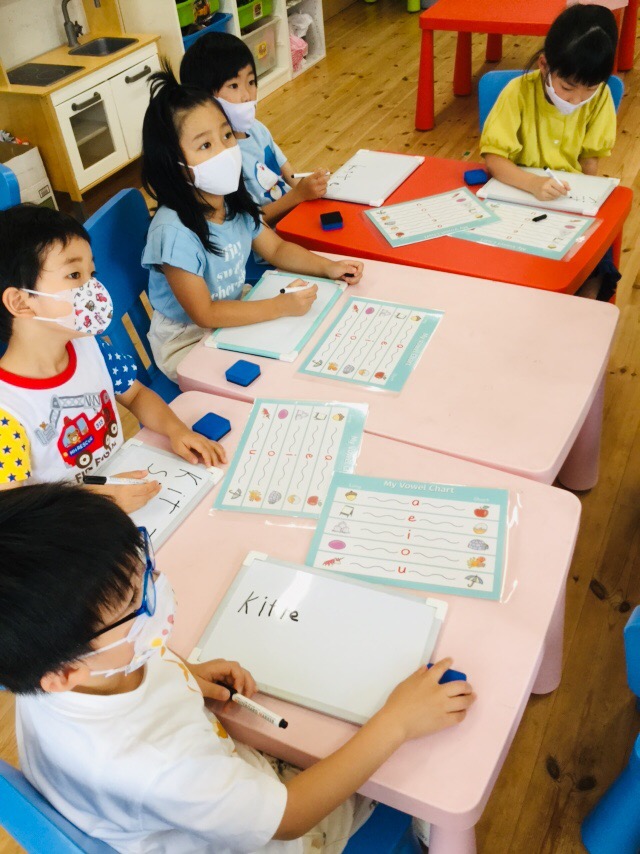
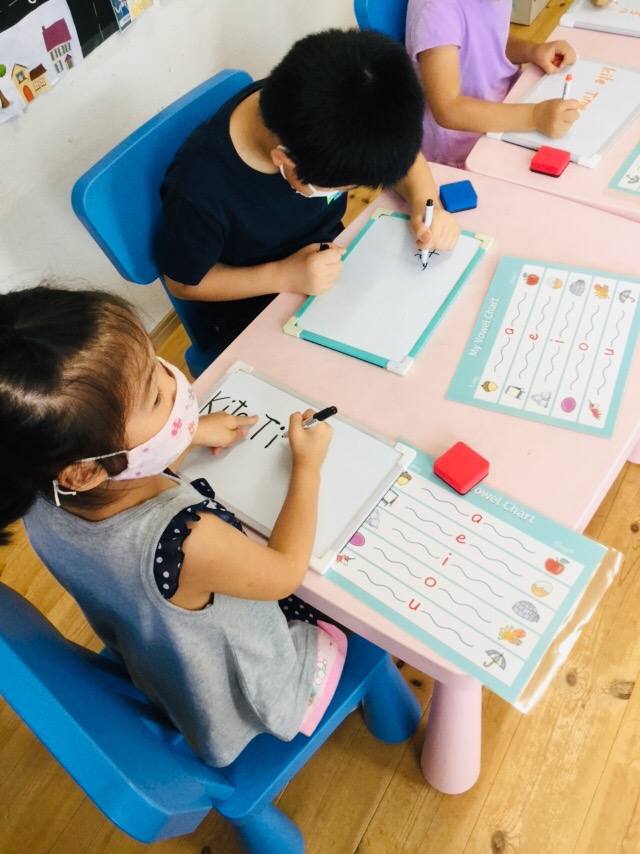
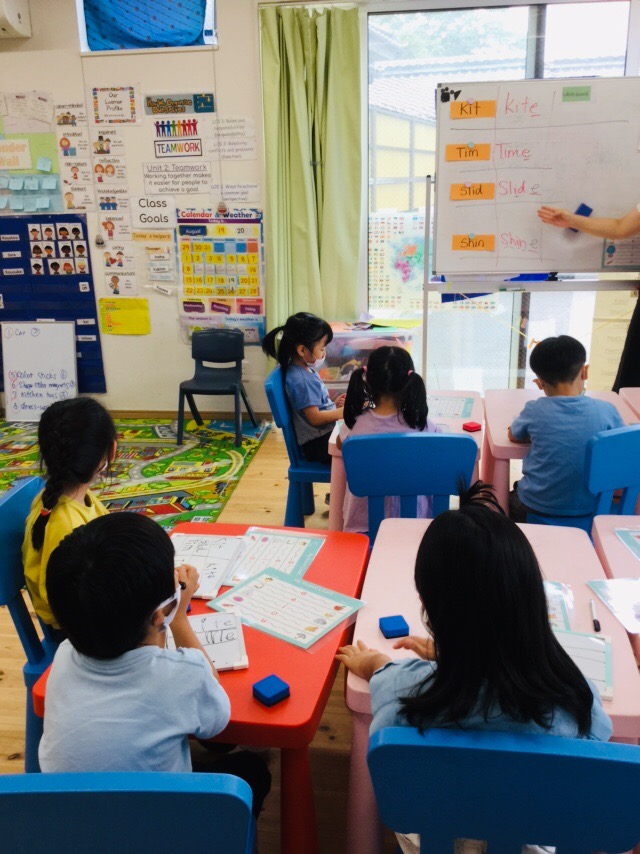
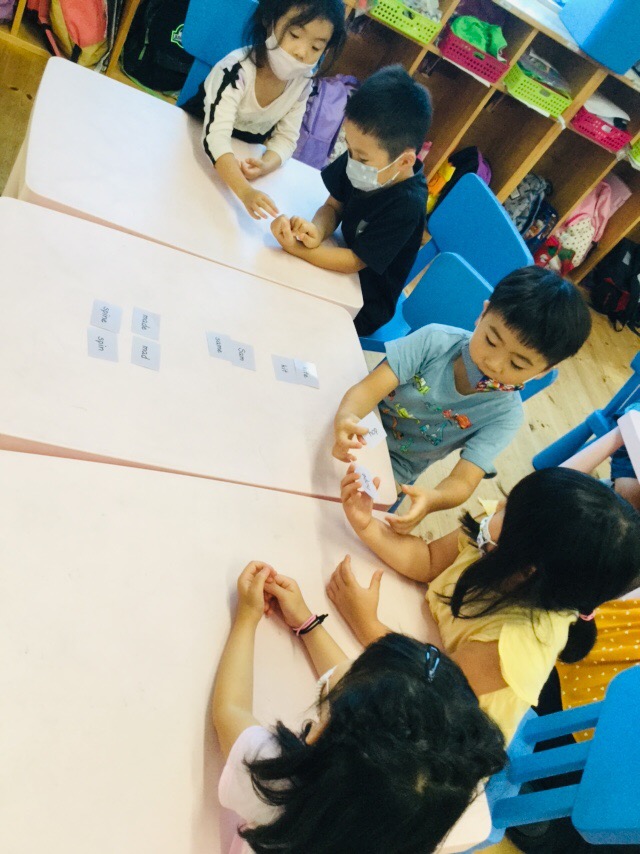
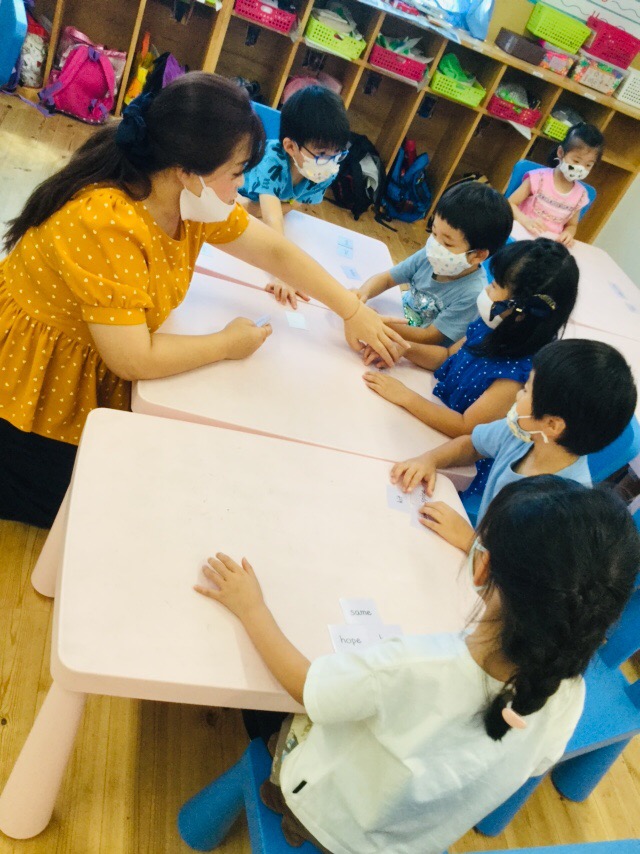
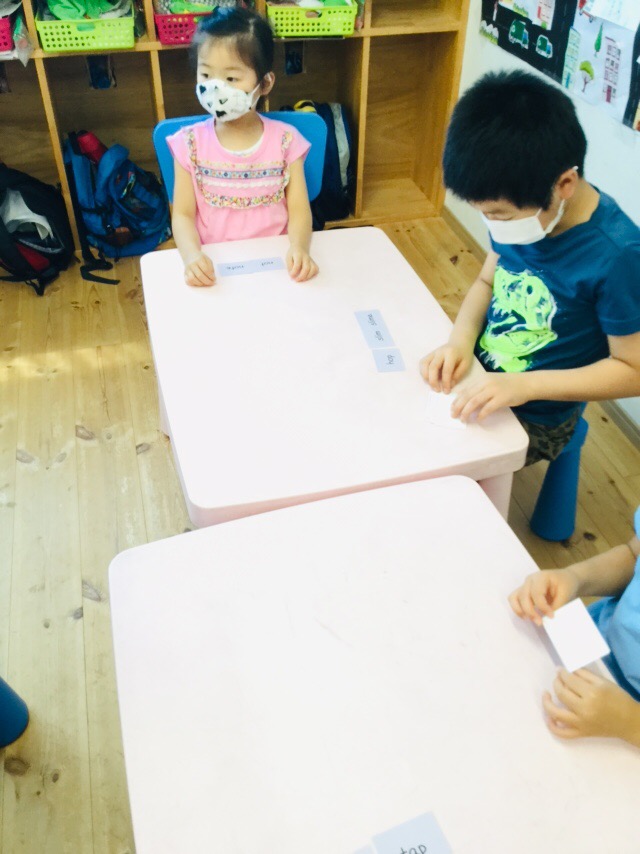
We had our monthly emergency drill this week and the focus was fire! We talked about the importance of evacuation and safety rules. The children remembered the O.Mo.Ha.Shi.Te steps and what they each represent. They all echoed what they needed to do to stay safe during a real fire. Practice makes perfect, and we hope they carry these life-saving skills throughout their lives!
今週は月に一度の避難訓練があり、火事の避難訓練をしました。避難することの重要性と安全ルールについて話しました。みんな、「おはしもて」のステップと、それぞれが何を表しているかをしっかり覚えていて、実際の火事の時に何をしなければならないかを話してくれました。習うより慣れろ、この命を守るためのスキルを一生身につけてほしいものです。
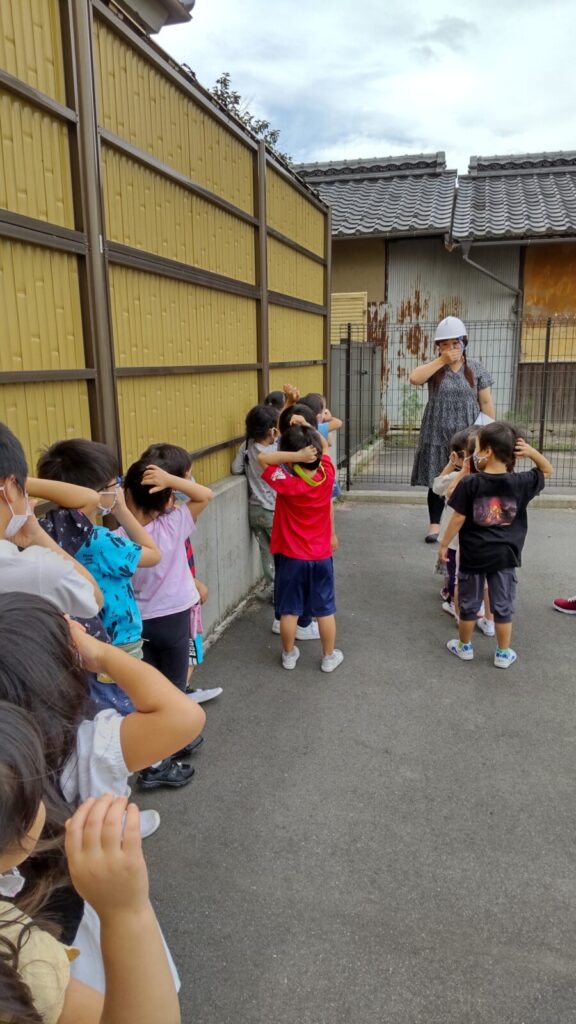
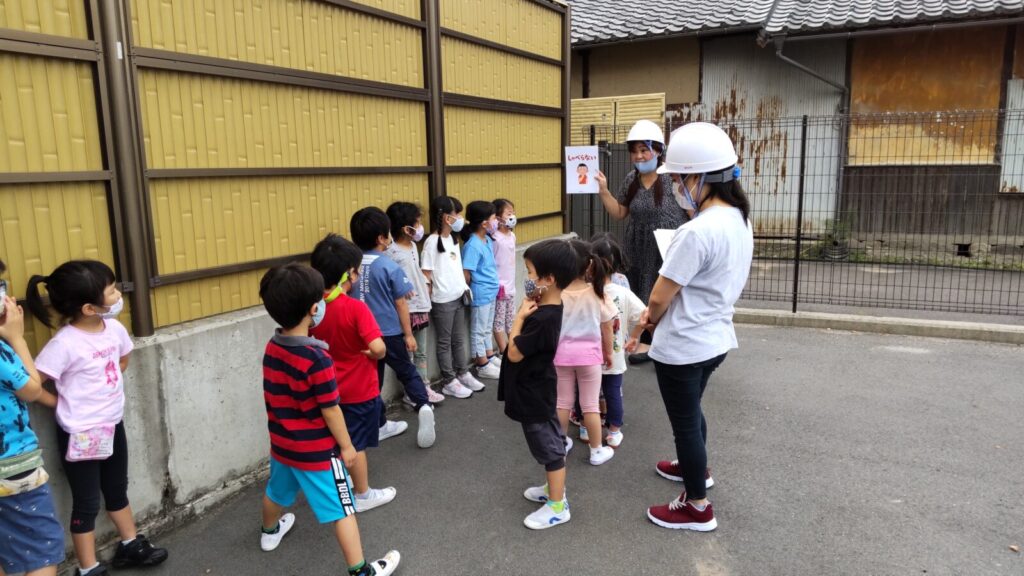
Last but not least, these are just of few snap shots of the fun we had this week!
最後になりましたが、今週もみんなが楽しく遊んでいる様子の一部をご覧ください!
